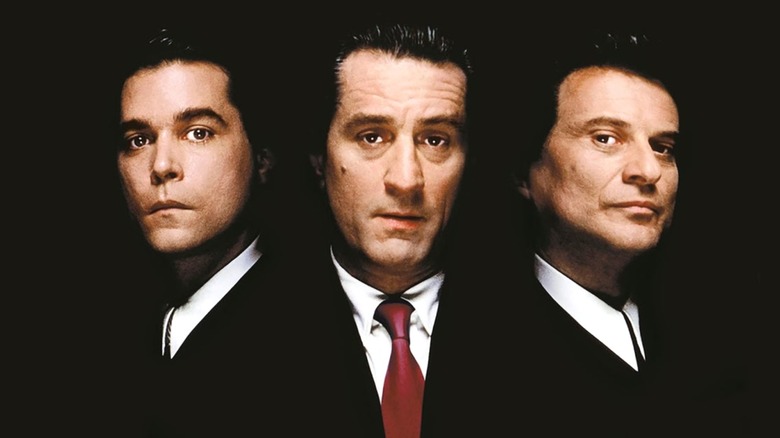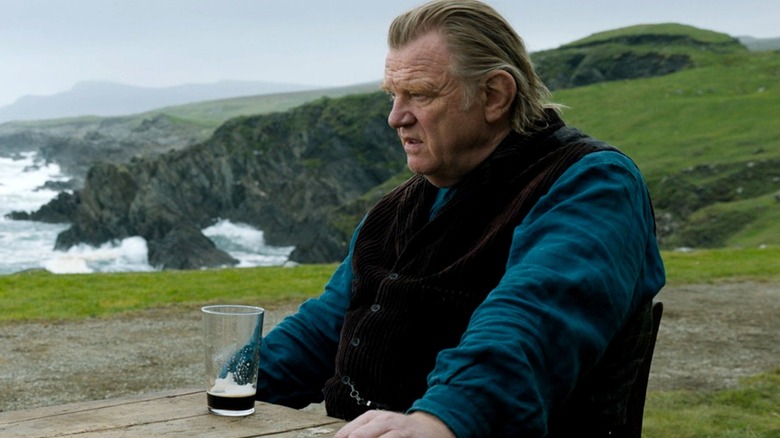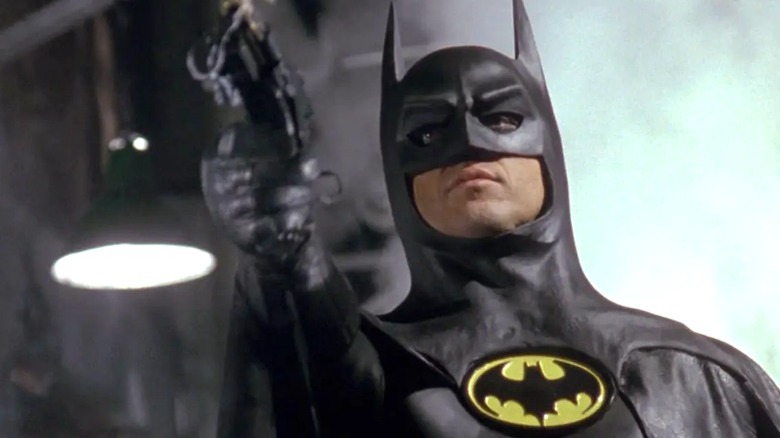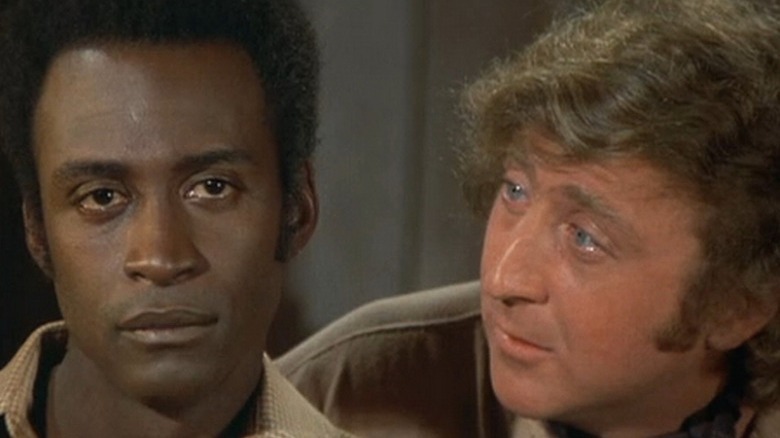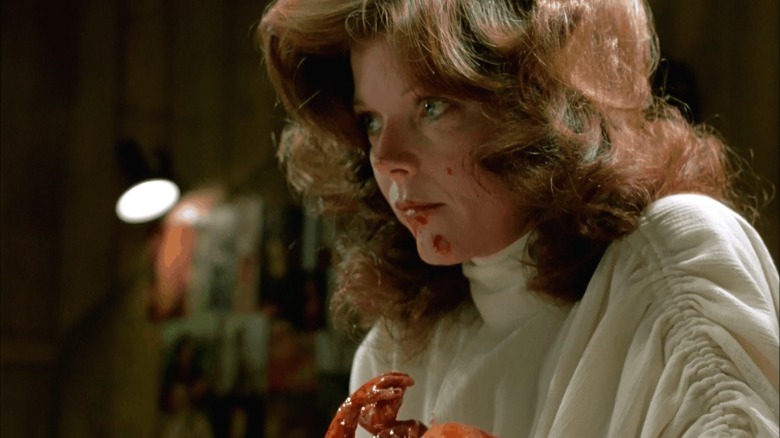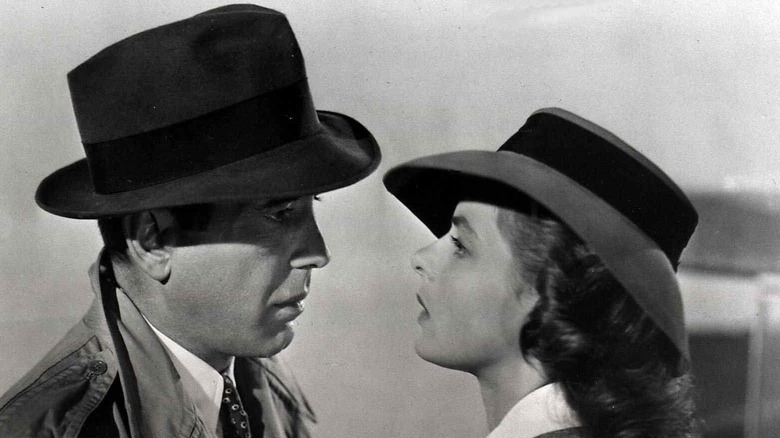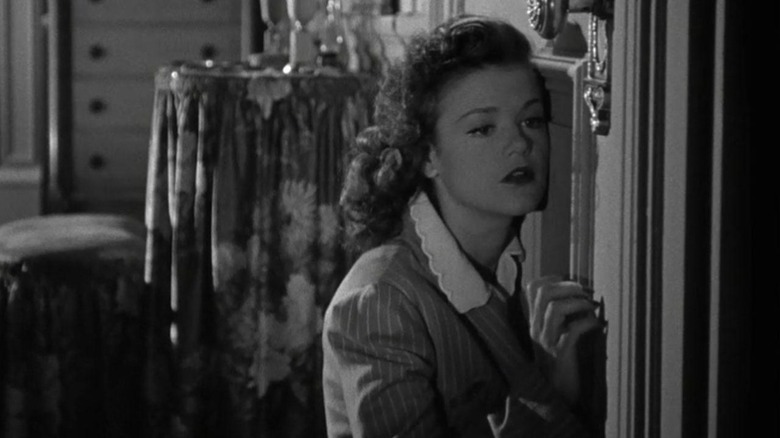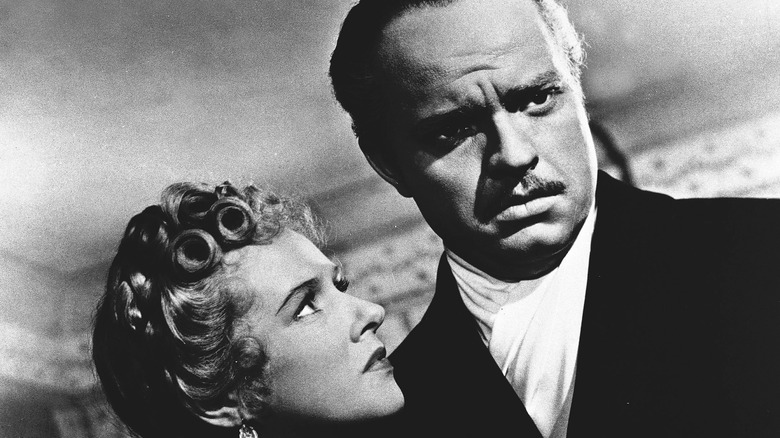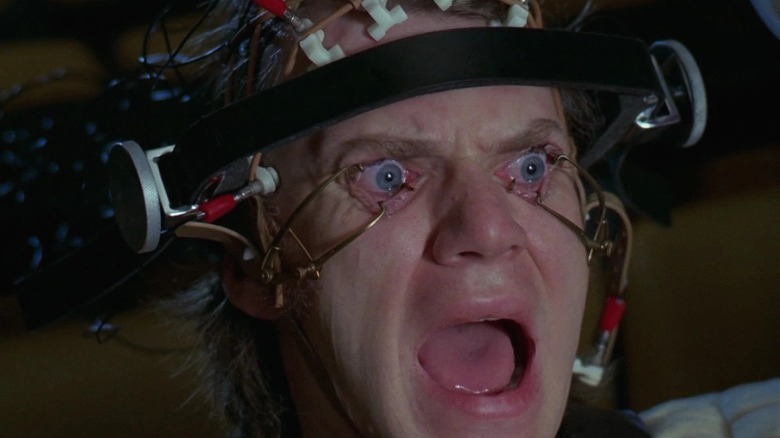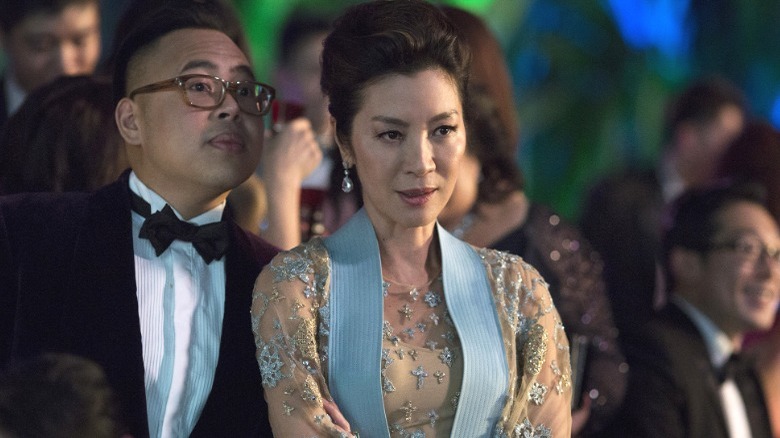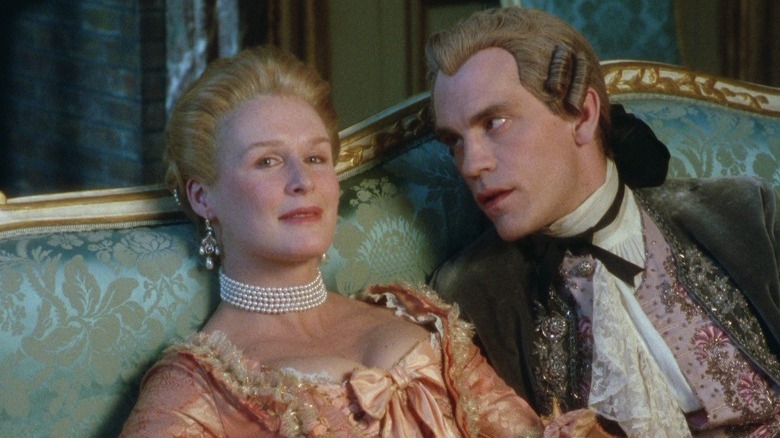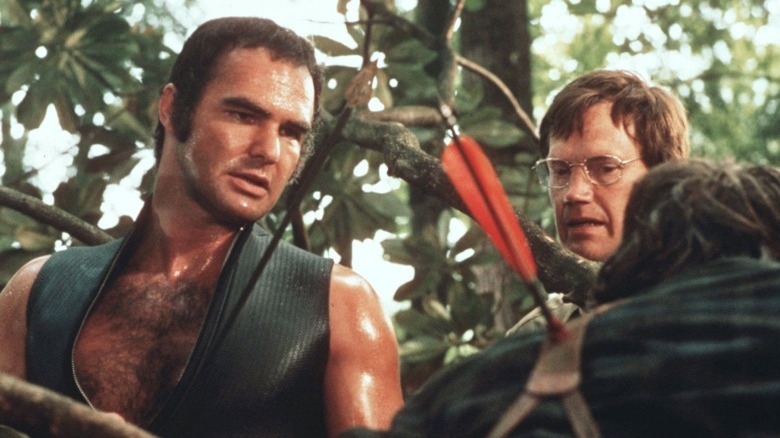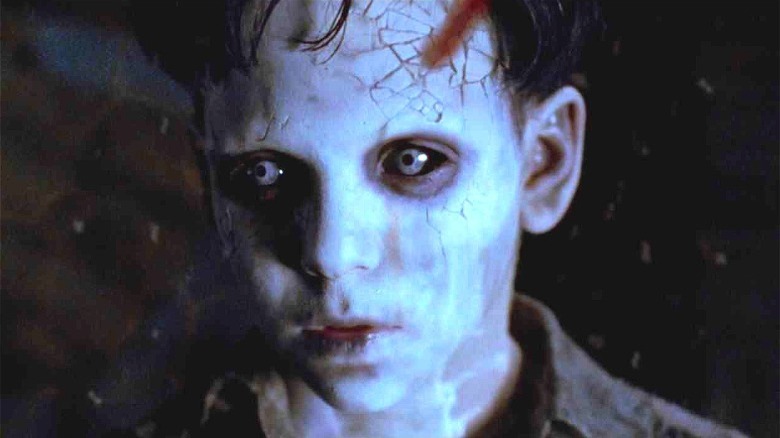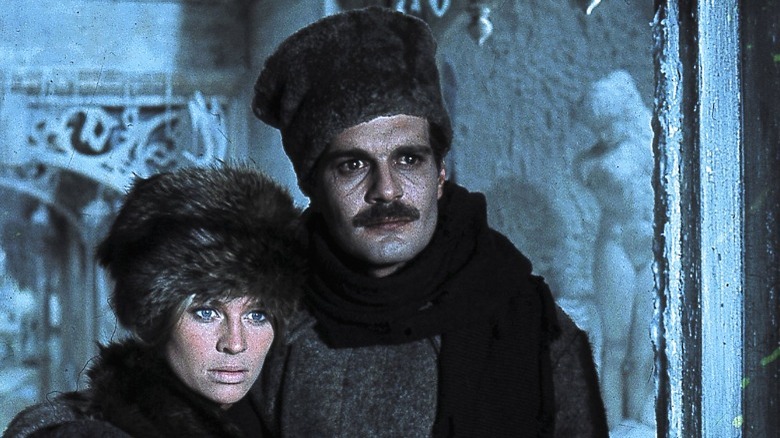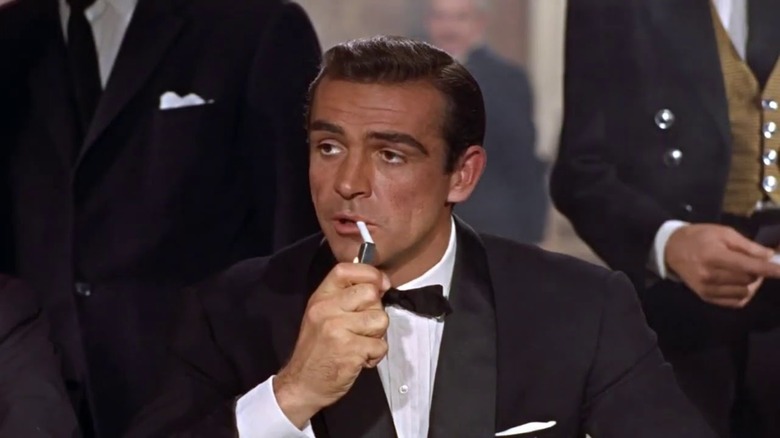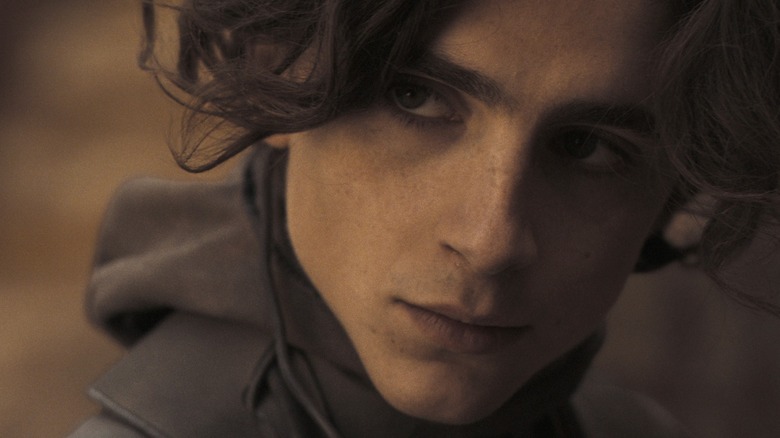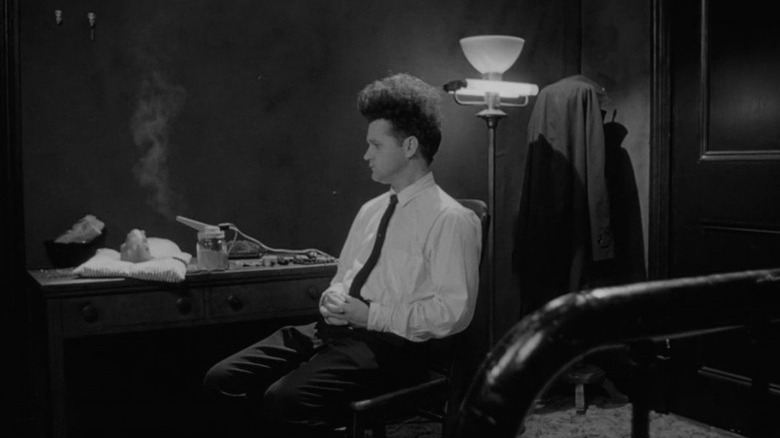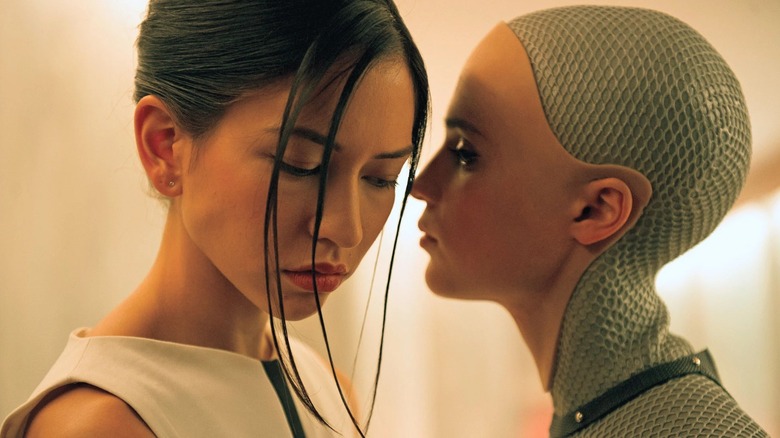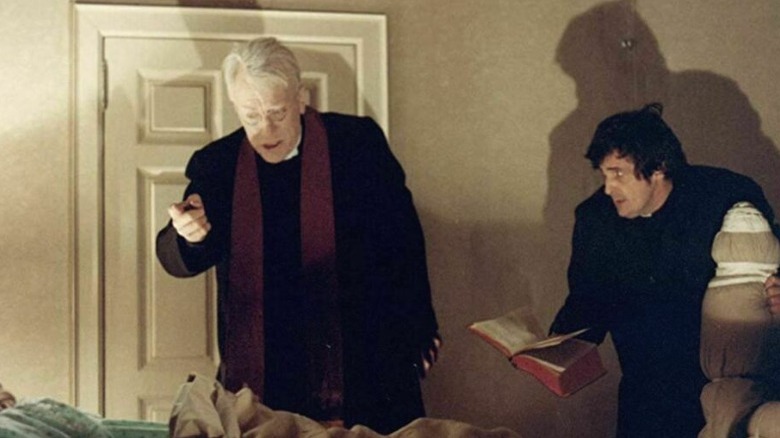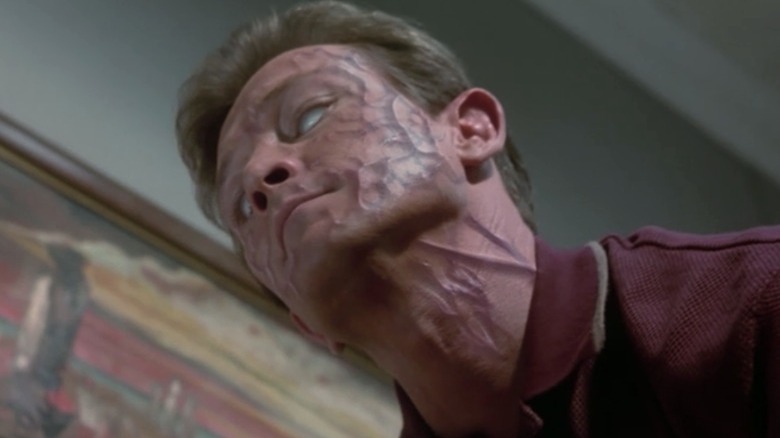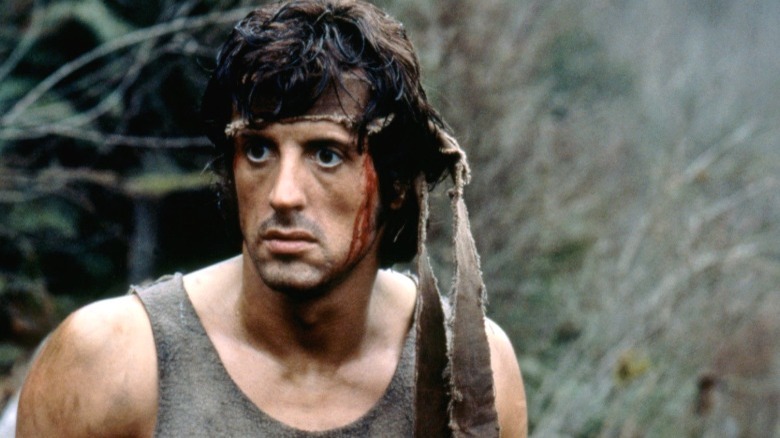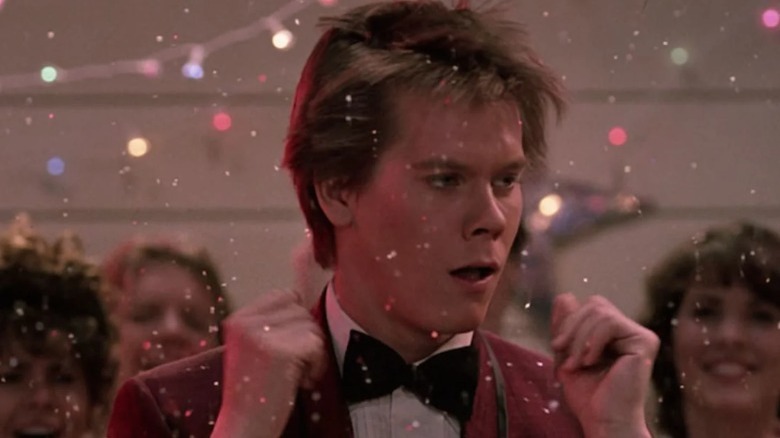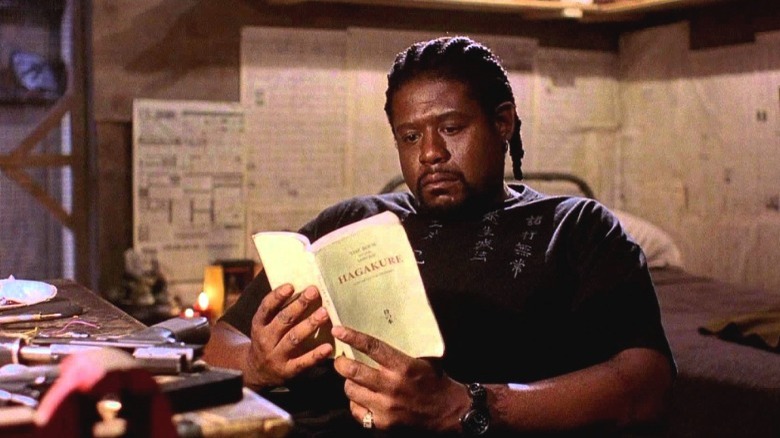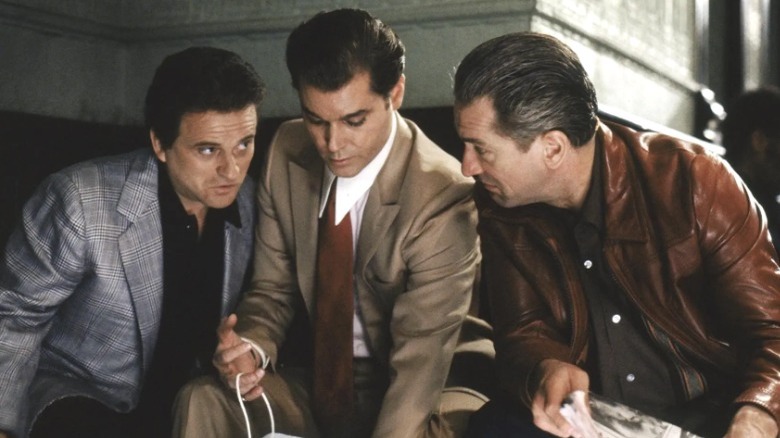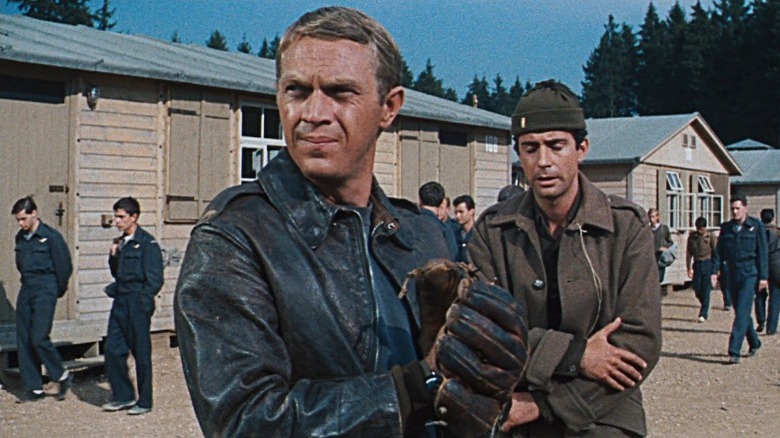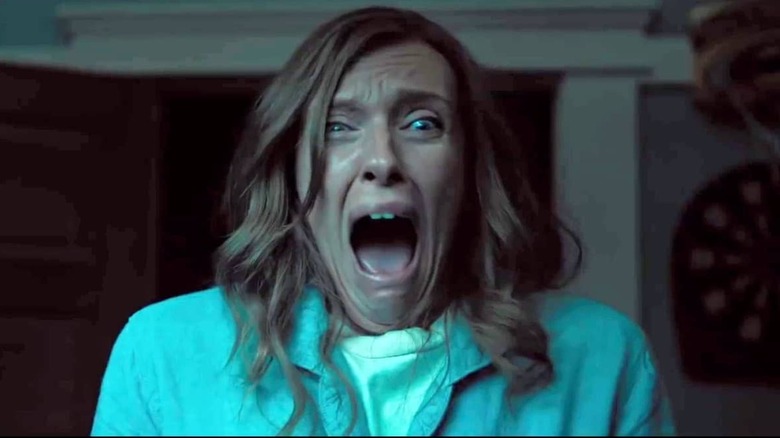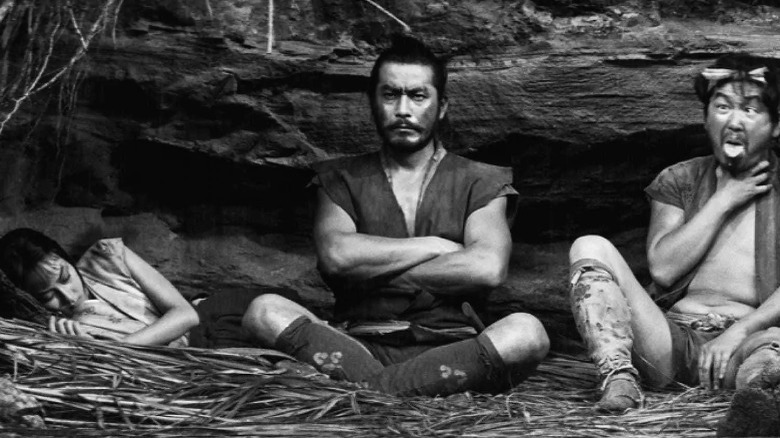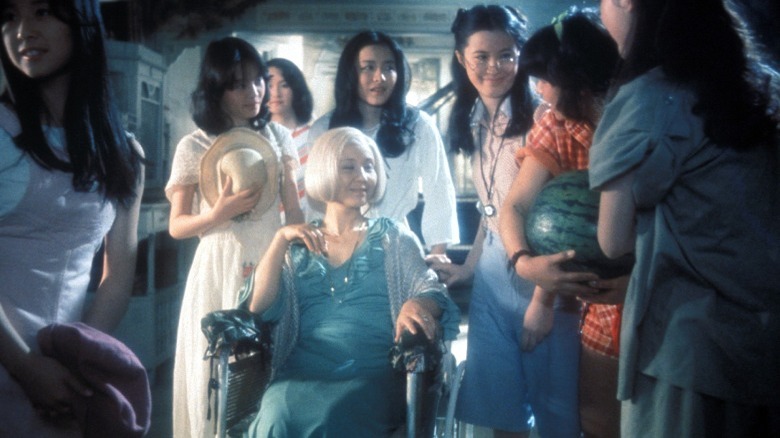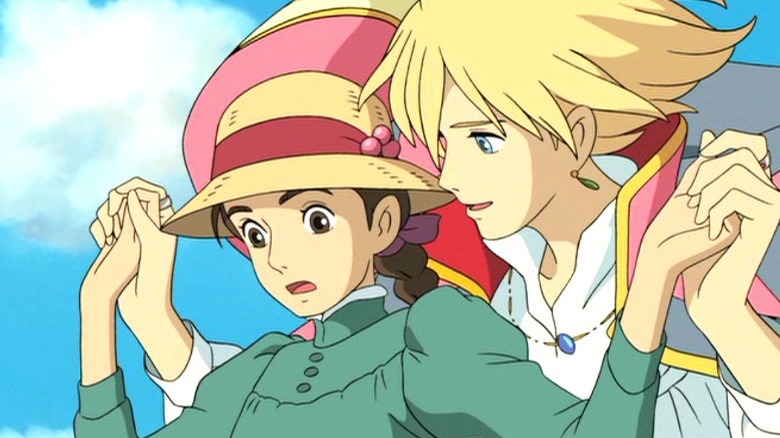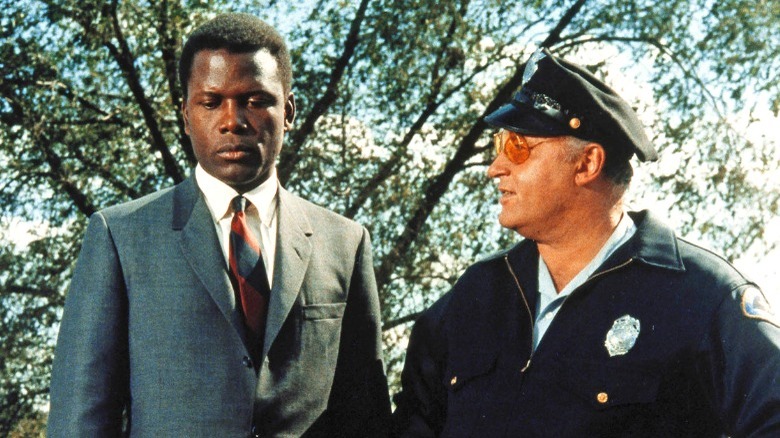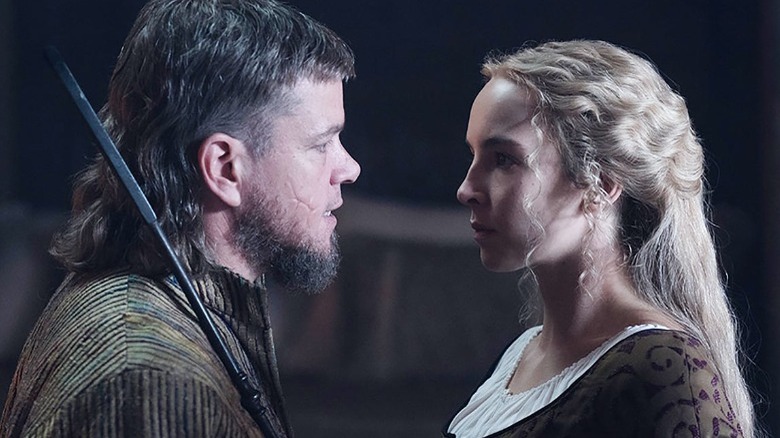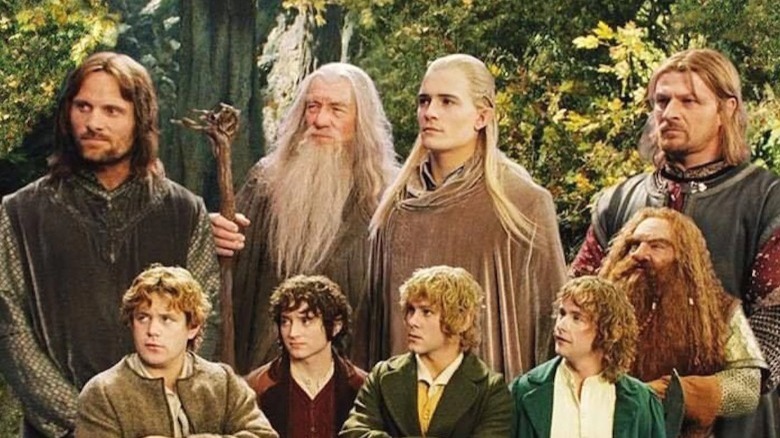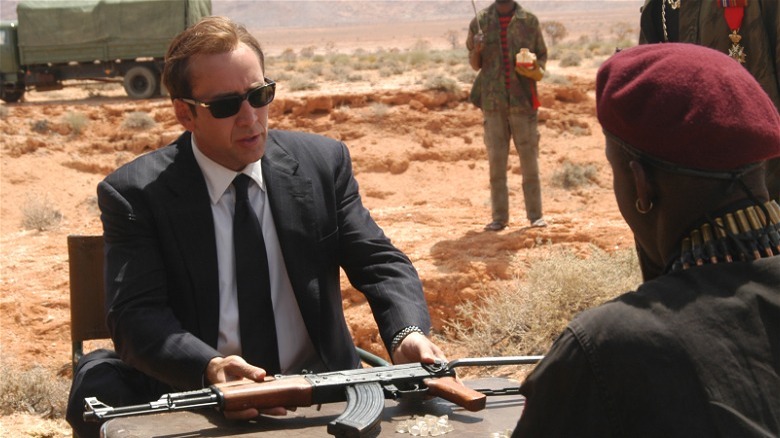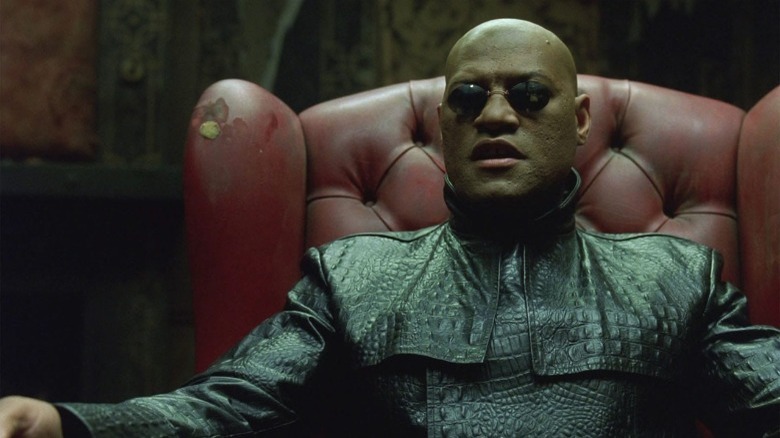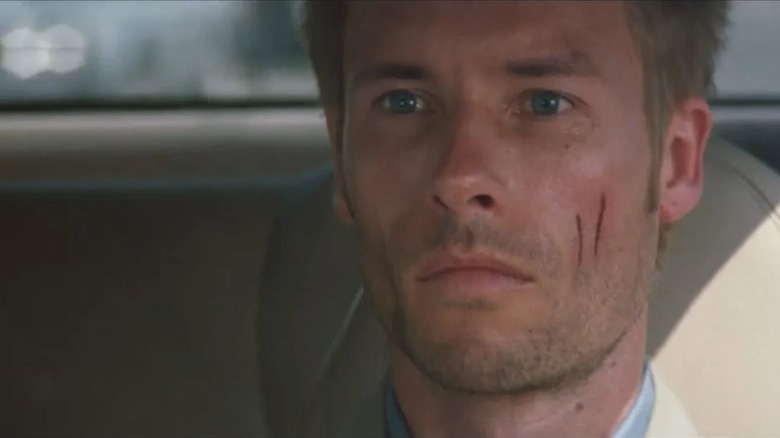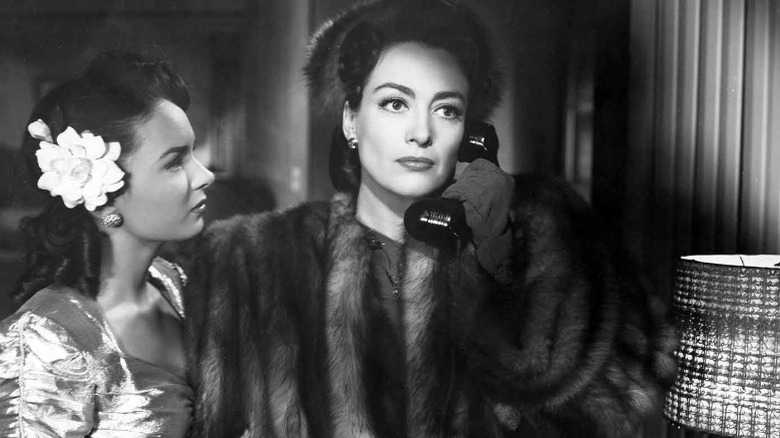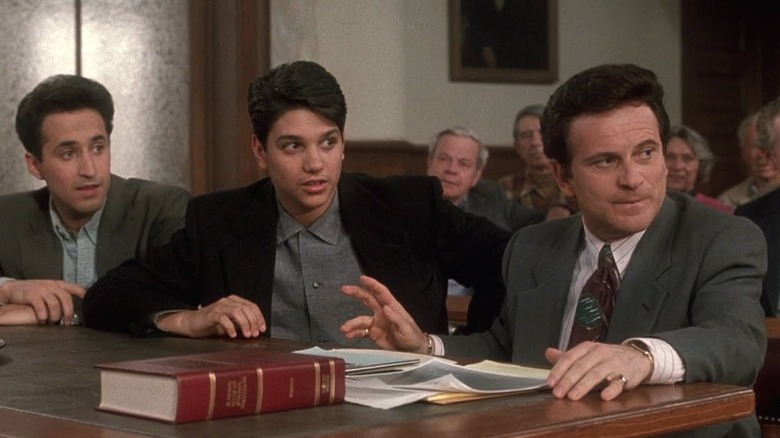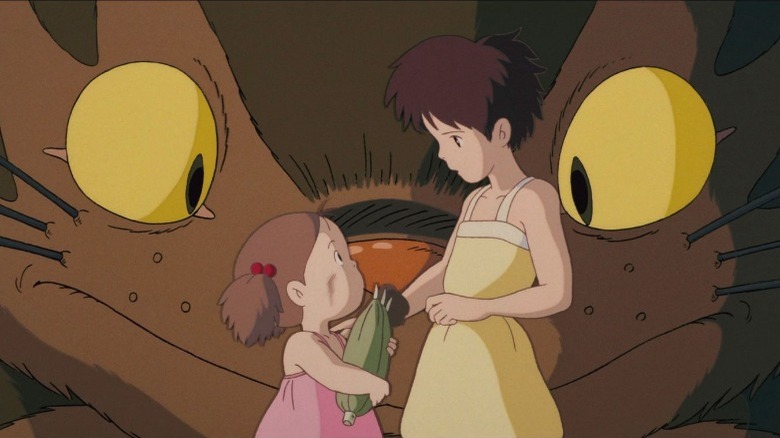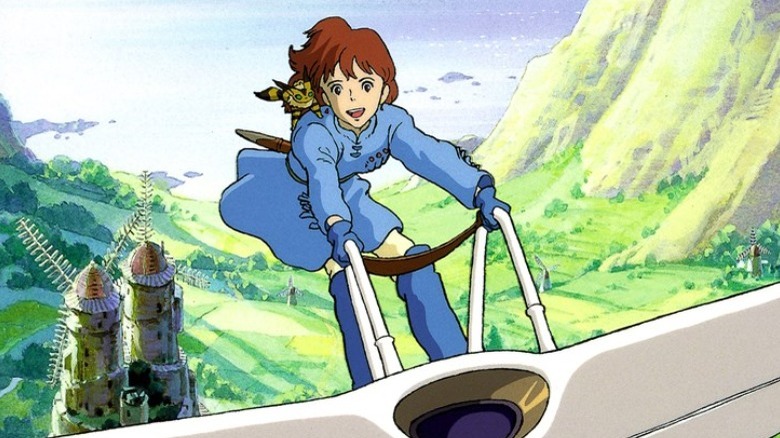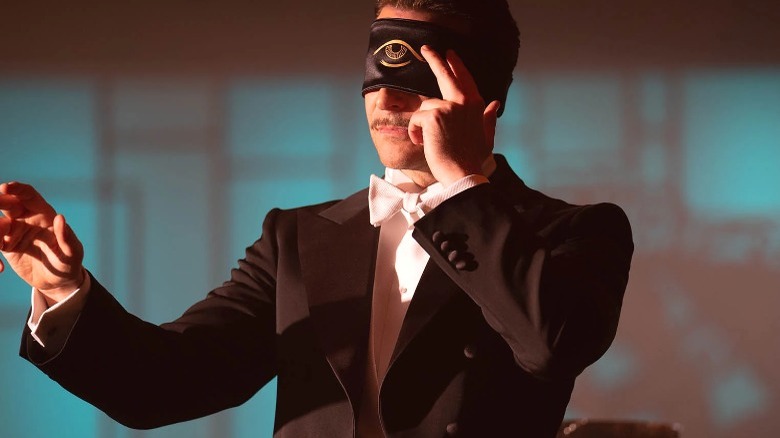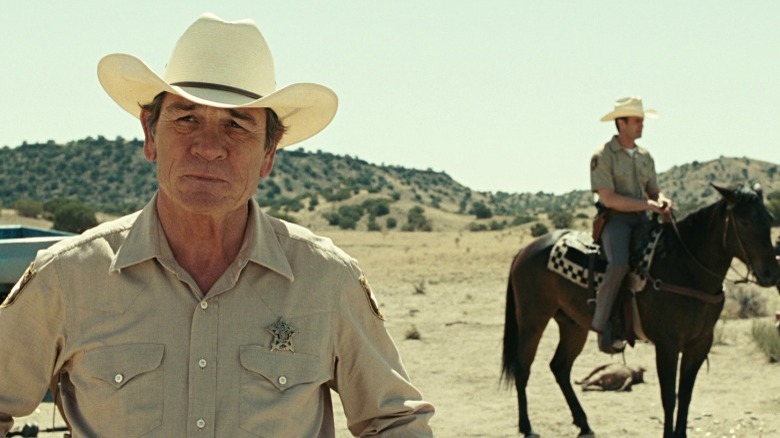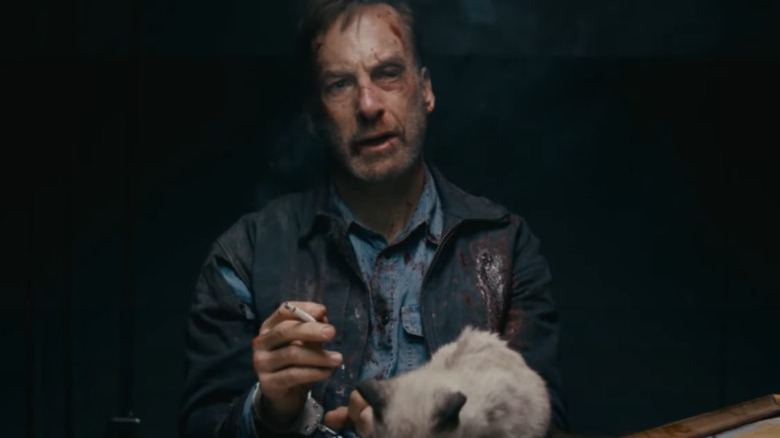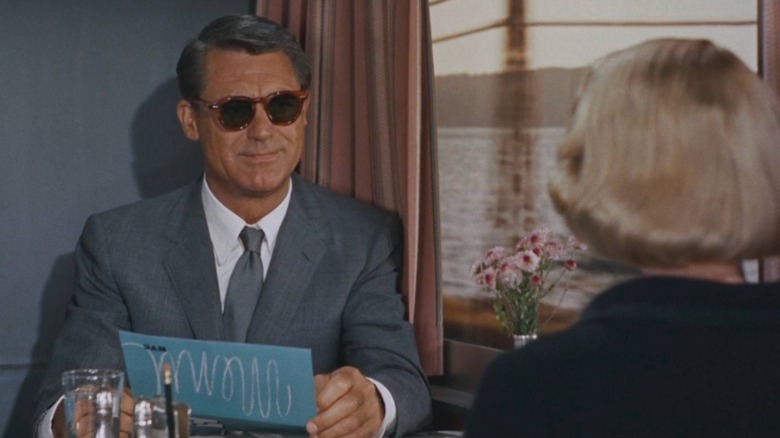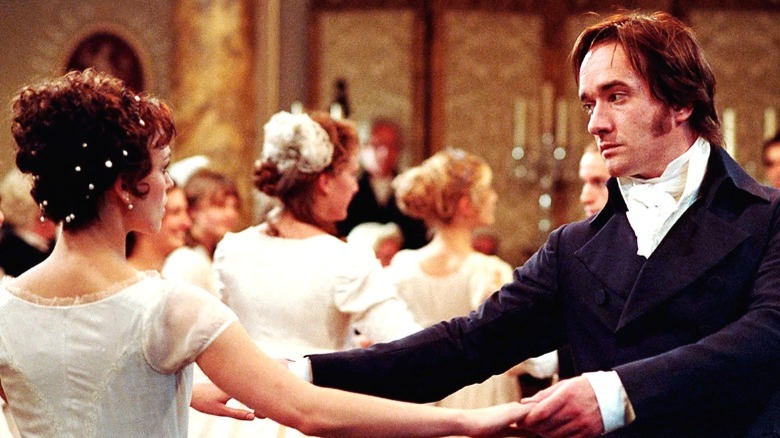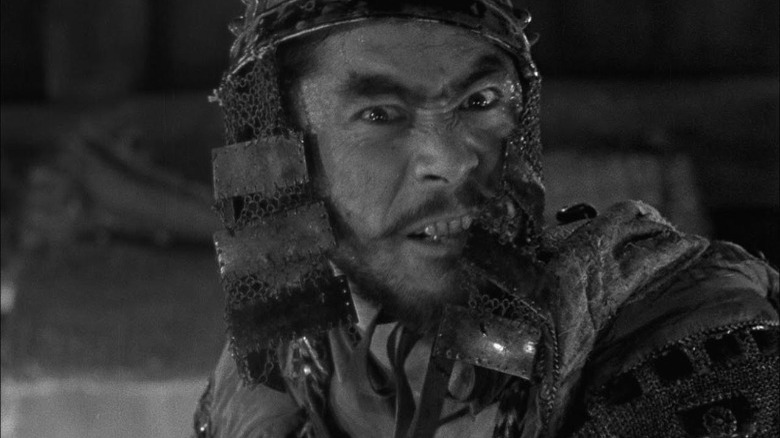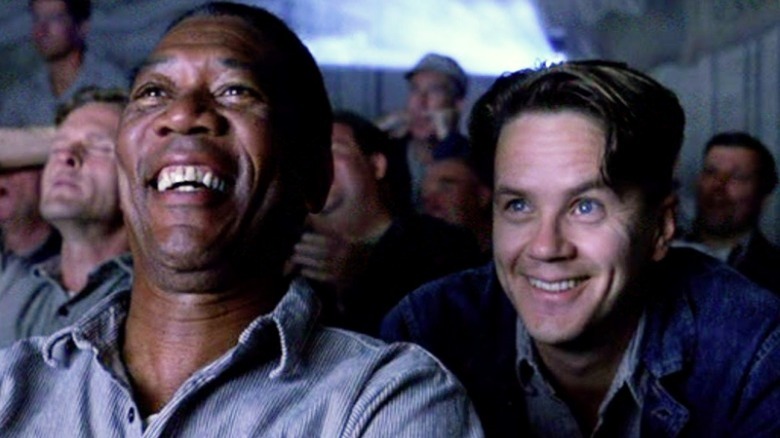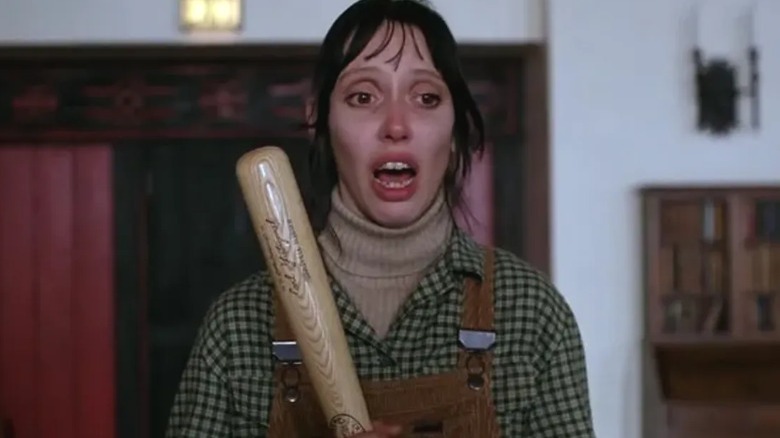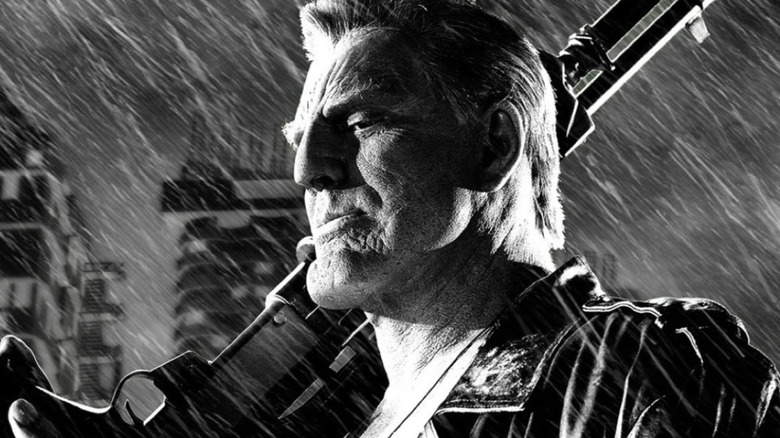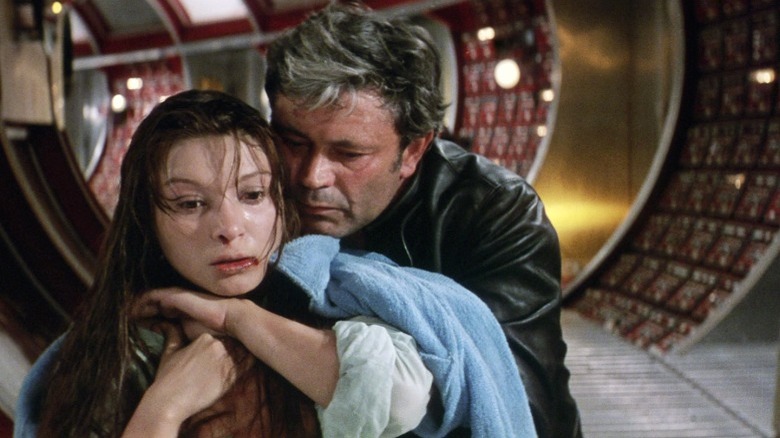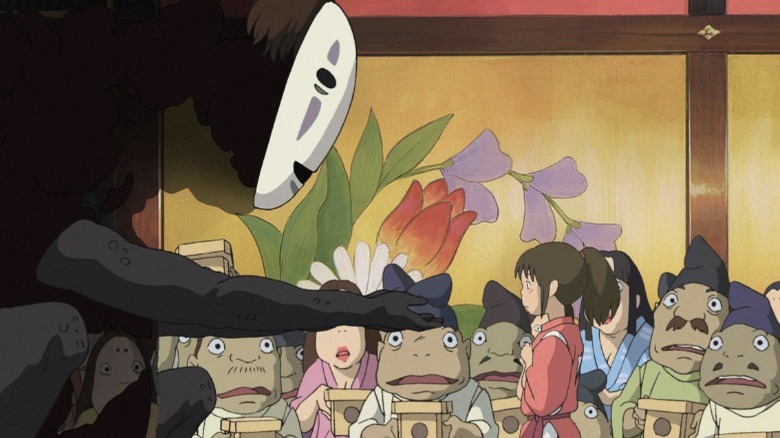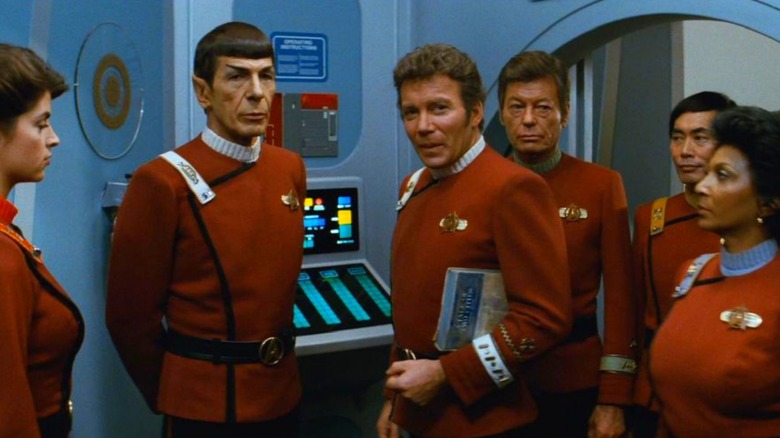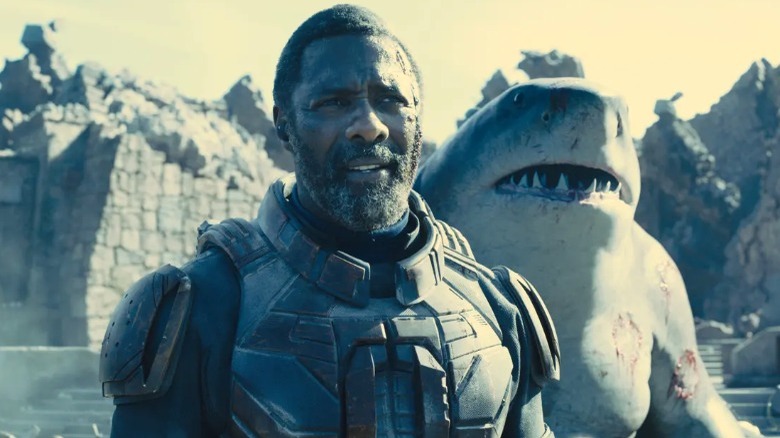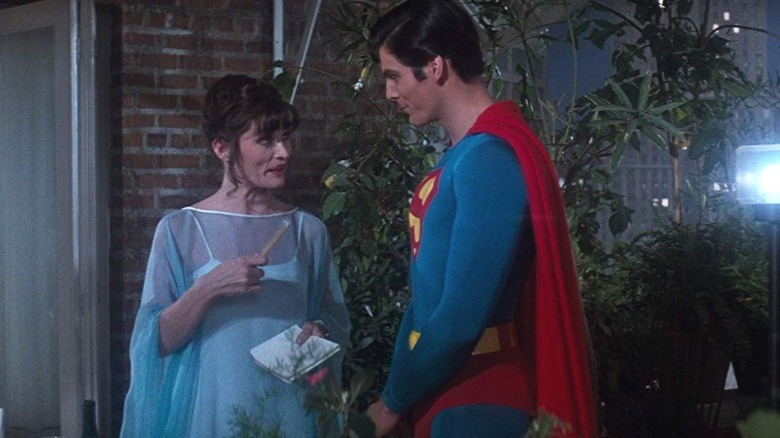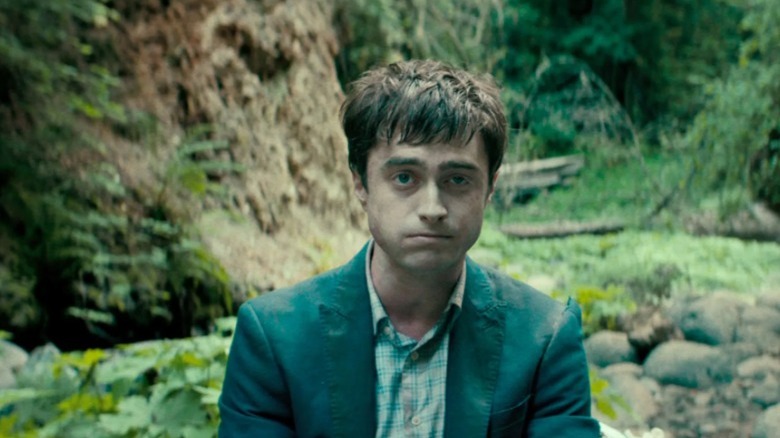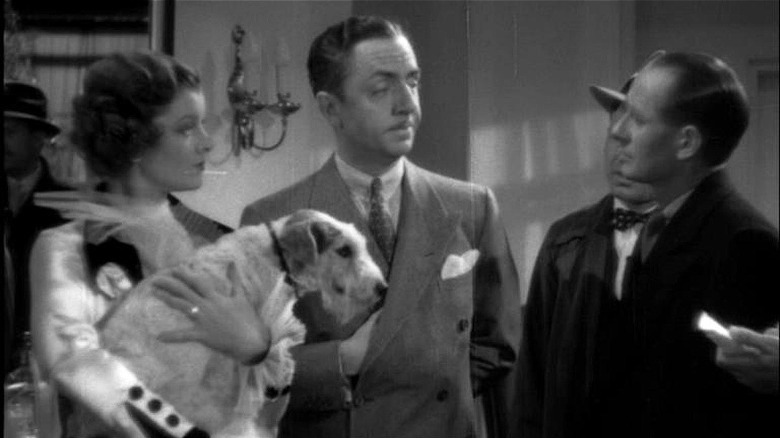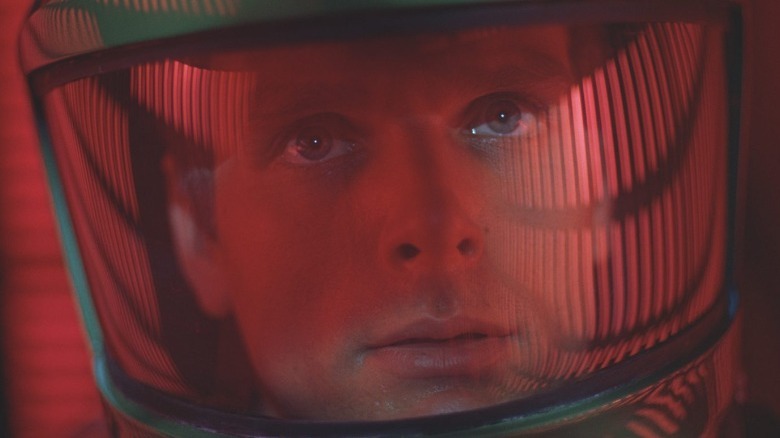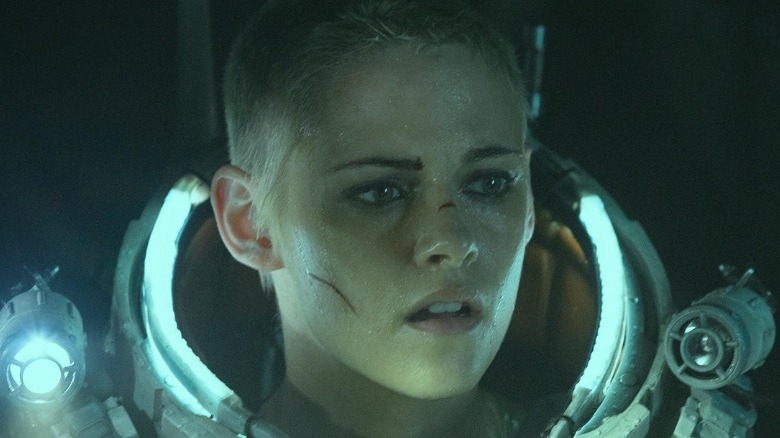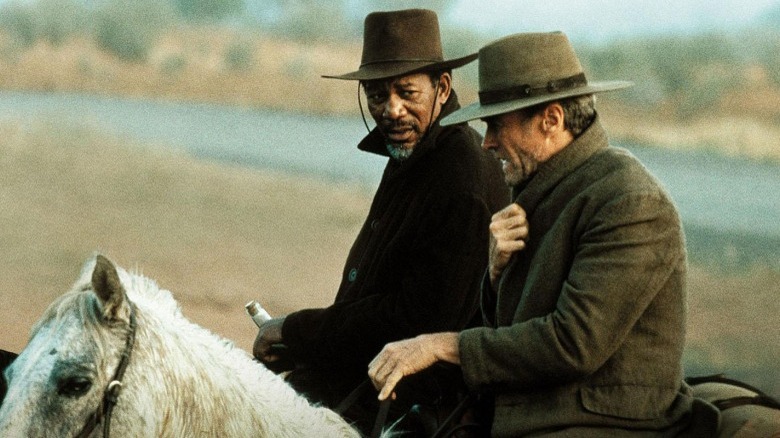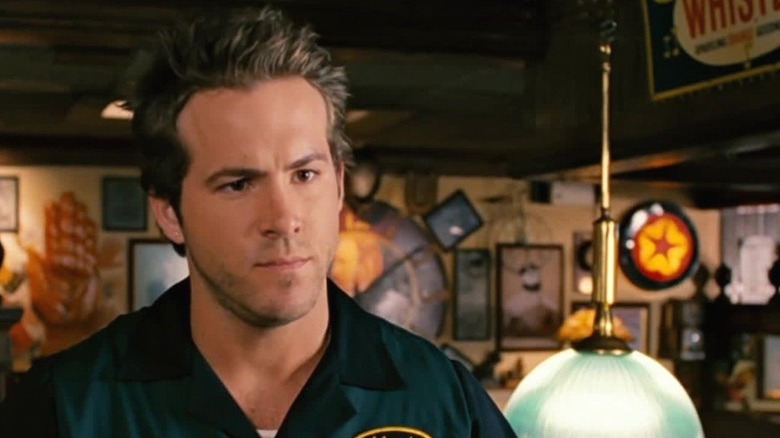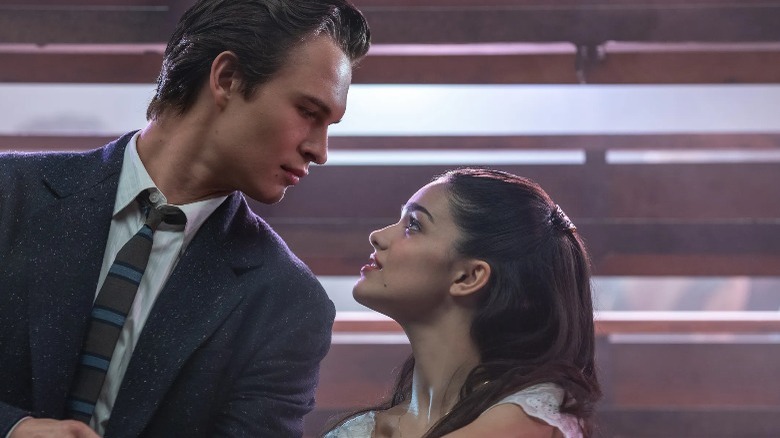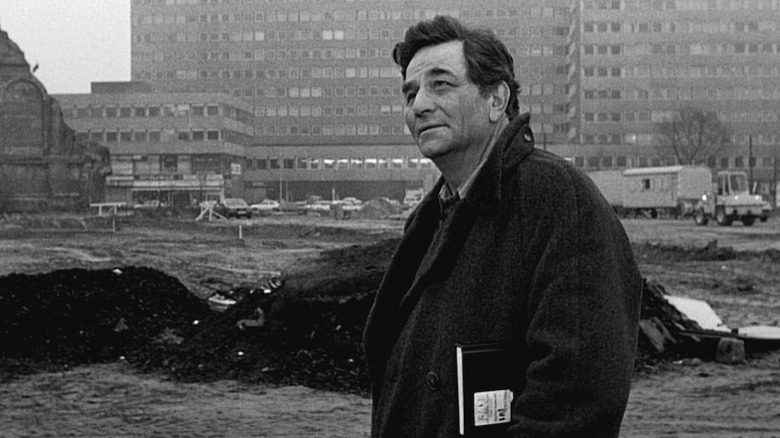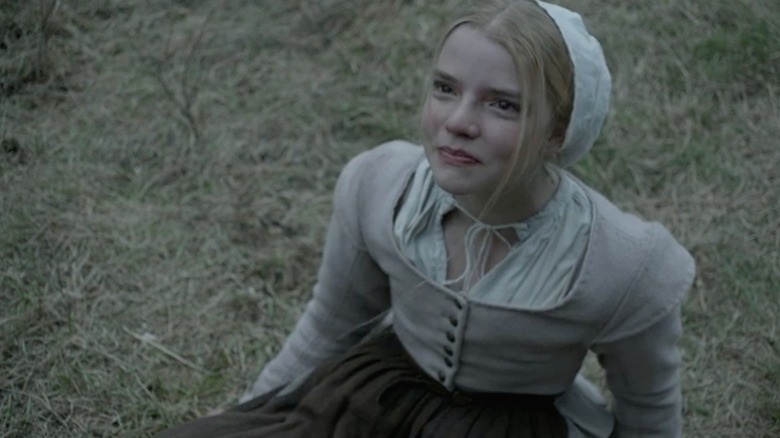The 60 Best Movies On HBO Max Right Now (February 2023)
HBO Max is a relative baby when it comes to streaming services. The platform went live in the U.S. in late May 2020, and began creeping worldwide in the months after. It's a plot twist for stately old HBO, which became the first-ever premium cable service on November 8, 1972. It's the company that set the blueprint for dozens of other channels that followed. But HBO wasn't always the juggernaut of content it is today. Back in the '80s, latchkey kids and adults with irregular schedules secretly knew the company's acronym didn't stand for Home Box Office, but rather "Hey, Beastmaster's on!"
Today, HBO Max has a huge stable of content available on demand. Ironically enough, "Beastmaster," with its fetching, mostly naked Marc Singer, isn't currently available. But, as the home of Warner Media content, and through partnerships with Studio Ghibli, Turner Classic Movies, Adult Swim, and many more, it always has something new to check out. To help you navigate your watch list, here's our curated list of great picks currently streaming on HBO Max.
The Banshees of Inisherin
"The Banshees of Inisherin," which stars Brendan Gleeson and Colin Farrell and is directed by Martin McDonagh, is not a follow-up to the trio's previous team-up, "In Bruges," in any meaningful way except one: Both Gleeson and Colin Farrell might well be stuck together in a beautiful, bucolic hell, just like Farrell's character feared in the older movie's closing moments. This time, however, the real hell is not the Flemish city, nor the lonely, fictional island of Inisherin, but each other.
Considering that Gleeson's Colm and Farrell's Pádraic start off as best friends, one wonders how they manage to fall out so thoroughly and so fast. But they do, and the result is a black comedy that takes us on a whiplash-inducing ride through the worst parts of ourselves. Never has battered masculinity been so funny, while also driving home why it does so much damage.
Batman
Travel back in time to 1989, when Tim Burton's name on the marquee didn't cause Hot Topic's stock to rise and our favorite Batman was still Adam West. Casting Michael Keaton, star of cult comedy hits like "Gung Ho" and "Mr. Mom," was seen as a bizarre move at the time, but his sardonic, emotionally distant vision of Bruce Wayne was the year's best surprise. A lot of ink was spilled about Jack Nicholson's vibrant turn as the Joker, but honestly, watching the charming Wayne turn into a seething, whispering, stiff-necked vision of terror worked in a way that wouldn't be matched until Christopher Nolan arrived.
There's a reason why there's so much excitement surrounding Keaton's return to the DC universe. Keaton set a modern standard for the portrayal of Bruce Wayne; watching this film is all the proof that a Batman fan needs. As a bonus, the accompanying Prince album slaps in a way few other movie soundtracks do, and the imagination that Burton puts into his set pieces is devoid of the cynically formulaic aesthetic his current movies adopt.
Blazing Saddles
If you haven't seen Mel Brooks' comedy masterpiece "Blazing Saddles," it's well past time to change that. A satire about everything to do with the old American West, from real life social history to western movie tropes, not to mention a searing lampooning of racism, it's an eternally relevant film that can't be replicated. Don't listen to the people who insist that movies like this can't be made anymore; many of them don't understand that they're represented in the film by the common clay of the West, not Gene Wilder. The only exception is Mel Brooks himself, who is right that a remake would probably lose the bite this movie thrives on.
The language in the film is something to be aware of, if you're introducing younger viewers to classic cinema. The use of racial epithets is at a Samuel L. Jackson-tier of feisty. However, the delivery is laser-hot funny, and the joke is always on the sad, socially backward losers, not the targets of the hate speech.
The Brood
There are a few movies about the emotional devastation that a failed relationship can inflict on us, but David Cronenberg's "The Brood" looks down on flicks like "Marriage Story" and "The War of the Roses" with a cynical, horrific eyeball dangling out of its fleshy socket. Yes, it's a body horror movie, and it slowly walks the audience right up to our new Holy Mary Mother of the Brood while she gently cares for her awful newborn like it's a puppy.
Cronenberg's fascination with the mind and the body is on full display here, with the not-quite-villainous Dr. Raglan offering a controversial new emotional therapy. Psychoplasmics puts the matter over the mind, changing the flesh in order to release repressed emotions. It's controversial, but recent divorcee Frank Carveth finds out a lot more about why this therapy is dangerous before he reunites with his ex-wife. The titular brood, meanwhile, make the Children of the Corn look charming.
Casablanca
It's easy to succumb to the suspicion that our hoary film classics are going to be snore factories. Sometimes, that assumption is justified. Other times, our modern hesitations keep us away from genuine treasures. "Casablanca" falls into the latter category. Yes, it's a sappy old romance starring Humphrey Bogart and Ingrid Bergman. It's also an emotional exploration of the joy and love of living, especially when the rest of the world is teetering on the edge of hell.
While the heart of "Casablanca" is the frayed thread of old romance between Bogart's charming nightclub owner and Bergman's smoky-eyed resistance agent, its soul is a hearty condemnation of neutrality in the face of evil. Casablanca, the gem of Morocco, is a place where both the Nazis and the members of the French Resistance can get a drink in relative safety and peace, but that neutrality is a specter that's easily banished when it's time to choose a side. As a film school requirement, "Casablanca" can be exhausting. As a movie, it's still spectacular.
Cat People
The original 1942 version of "Cat People" lacks a David Bowie soundtrack and has zero shots of a young Malcolm McDowell stripped to his waist, but it's a heady, lusty experience regardless. It goes as far with its implied sexual threat as one could under the weight of the newly-installed Hays Code, and its story is fascinatingly centered on the taboo of women's desires. That's an even more important topic today, unfortunately, and this film is all about women's fears, needs, and consequences, all bordered by men's unthinking blindness.
"Cat People" is restrained in all the right places, with a modern sense of tension and melodrama. Its tragedy is human, and beyond the occasional shots of real cats, its effects rely heavily on shadowy implications. Roger Ebert named this one of his favorite films for good reason. Years later, it's still a masterclass on how to create an eerie aura out of almost nothing but air.
Citizen Kane
Like "Casablanca," Orson Welles' "Citizen Kane" is a movie you feel like you've subliminally watched a hundred times because your film geek friend won't ever shut up about it. I get it. But watch the thing at least once, anyway. There are tricks to this film's cinematography that are still hard to match with modern tech and CGI. It's unbelievable to think that this was Welles' first directorial job, and yet it's still the poster child for "The Best Films of All Time" lists 80 years later.
A Faustian satire of the men who forged and profited from the plague of yellow journalism that still plagues the news media today, "Citizen Kane" slowly tears Charles Foster Kane apart by using his own ego as the knife, flensing him back to his deathbed and his half-remembered childhood dreams. Decades before video rentals were invented, this movie played in William Randolph Hearst's mind for free, infuriating him in the way that I wish I could haunt Ted Turner. It's also Donald Trump's favorite movie, which is funnier than every gym bro who's obsessed with misunderstanding "Fight Club."
A Clockwork Orange
Stanley Kubrick's entire filmography is worth a film fan's time, although "A Clockwork Orange" remains harder to watch than the flawed "Eyes Wide Shut." An adaptation of Anthony Burgess' dystopian novel, Kubrick's take is heavy on the cynicism underpinning this near-future nightmare. It also, much to Burgess' dismay, skips the optimistic epilogue that suggests that Alex can grow out of his awful behavior. As time goes by, Kubrick's decision looks wiser than ever.
Alex (Malcom McDowell) and his pack of droogs are a symbol of this unknown era's chaos. They're the result of an authoritarian system that both creates and condemns monstrosities, drawing a line between whether or not these creatures are useful to the greater system. It's the first lesson that Alex truly heeds in his life, and the vile growth he goes through in the second half of the film is bitterly realistic. Sorry, Mr. Burgess. Boys may be boys, but Kubrick understands what growing up actually means.
Crazy Rich Asians
Some things cross cultural boundaries. The first time that someone meets their current partner's family, for example, is often one of the most stressful days in a relationship. As such, putting that moment on film is guaranteed catnip, offering up a rich bed of potential for interpersonal strife and embarrassing mishaps. "Crazy Rich Asians" ups the ante even further when Rachel finds out that her boyfriend, Nick, is the heir of one of the richest families in Singapore.
"Crazy Rich Asians" is a cute, clever, and critically acclaimed movie based on the bestselling novel by Kevin Kwan. Its greatest strength is the way it uses classic romantic comedy tropes, making it familiar to almost any audience in the world. That's also its biggest flaw. "Crazy Rich Asians" is a wonderful film, but don't confuse its depictions of high-class Singaporean society with reality. Still, the sumptuousness of the film is irresistible, and any film with Michelle Yeoh is an instant win for me.
Dangerous Liaisons
The big-budget period drama goes through cycles, with each era bringing out one or more films that stand the test of time. The 1980s, with its booming economy, big hair, and bombastic music, was the perfect time to go back to pre-Revolution France and its ancien regime. Here, high society is an alien world of masquerades, dinner parties, operas, and glamor. However, such luxury breeds a different kind of war, and "Dangerous Liaisons" finds its most deadly general in the Marquise de Merteuil.
Glenn Close plays the Marquise, locked in sensual, verbal combat with her ribald ally, John Malkovich's Vicomte de Valmont. Together, they plot to upend the relationships of others out of petty vengeance and rebuffed lust. But raw emotions are about as safe as a sweating stick of dynamite, and de Mertuil's plans eventually go astray. It's a beautiful movie about beautiful people doing beautifully petty things — and Keanu Reeves is in it, for which I have zero explanation. He looks great, though.
Deliverance
Many people know exactly two things about "Deliverance." Yes, there's some fly banjo-pickin', and yes, Ned Beatty is told to squeal like a pig. There's a lot more to this survivalist stress ball than that, however, although the rape scene is certainly one of the more upsetting sequences in cinematic history. After that, the film turns into a purely human prequel to "Predator." Our four suburbanite men are now hunted by locals all too familiar with the unspoiled Georgia forests. In hindsight, they should've probably just stayed in a Holiday Inn.
The cinematography is lushly green, making the awfulness that goes on that much more complicated. It's human stuff, and we could probably get into some thematic investigation about the film's views on masculinity. However, the first viewing of "Deliverance" usually results in a two-hour long anxiety attack, with not a lot of room for more thoughtful examination. Filmed on location in Georgia decades before the Atlanta studio boom, "Deliverance" is a classic for good reason. Eat light before viewing, though.
The Devil's Backbone
Guillermo Del Toro may not have imbued 2001's "The Devil's Backbone" with as much of the colorful imagination that makes "Pan's Labyrinth" so special, but the similarities between the two films are very clear. "The Devil's Backbone" takes place during the last years of the Spanish Civil War, and the fresh scars caused by the conflict run through the orphanage where this film takes place.
Young Carlos is haunted by a ghost that lingers in the tiny orphanage, but that's not the real horror that he and the rest of the kids have to face. Greed and the history of violence are permanent background fixtures. The keepers of the orphanage have secrets, and all Carlos has in return is his innocence and his kind nature. That's enough to earn him some unusual friends, though, and by the end of this heartbreaking movie, all we can do is hope that's enough to guide him into a better future.
Doctor Zhivago
If "The English Patient" is too languid for you, you may have a rough time with its spiritual forefather, "Doctor Zhivago." Clocking in at three hours, it's a major commitment for a single film. And yet, this historical classic does so much with its fragile, passionate emotional connections that the slow pace becomes another symbol of the yearning that haunts its cast.
The backdrop of the film is the encroaching social collapse of the Russian Empire in the wake of World War I. The country would spend half a decade locked in a civil war that would end the life of millions, and that paved the way for the Soviet Union. "Doctor Zhivago" puts much of the brutality of the era at arm's length, though, with Yuri Zhivago (Omar Sharif) guiding the audience through a world of vivid romance. It's a softer film than director David Lean's previous masterpiece, "Lawrence of Arabia," but it's permeated by the same grace.
Dr. No
It's okay to not like James Bond. Neither does Daniel Craig. But for a look at old-time action movies, with all the practical and special effects and the macho gusto that come with them, it's worth spending some time with the franchise. HBO Max is bringing several classic 007 flicks to the service, and where better to start than the original?
"Dr. No" is where film magic happens. The first movie in the franchise, its opening act borrows a sequence from Ian Fleming's debut Bond novel, "Casino Royale" — don't ever worry about Bond continuity, it'll kill you — seating Sean Connery at a baccarat table, where he saucily lights a cigarette and introduces himself as, oh yes, "Bond. James Bond." From such slick beginnings, a legend is made.
The rest of "Dr. No" is a serviceable thriller that offers up all the familiar tropes. Honey Ryder (Ursula Andress) is our first Bond girl, Dr. Julius No (Joseph Wiseman) is our first agent of SPECTRE, and MI6 and its Q Branch are present from the very beginning. "Thunderball," also on HBO Max, is a slightly better movie, but "Dr. No" is historically iconic.
Dune
Denis Villeneuve loves Frank Herbert's sprawling epic about religion and greed in a far-flung future, and it shows in part one of "Dune." Almost every scene is a spectacle, bringing the massive Atreides ships, the Guild Heighliners that fold space with the power of thought, and the mystic Bene Gesseritt and their tangled weave of fate to life. It's an interpretation of the novel because it has to be, but the changes add a humanity that Herbert's prose sometimes lacks. Chani's presence may be scarce, for example, but through her we see the Fremen not just as a force to be reckoned with but as passionate caretakers of their deadly home.
Oscar Isaac is nobility personified as Duke Leto, exuding a subconscious awareness of his impending doom every time he appears. Timothee Chalamet is a younger, shakier Paul than Kyle MacLachlan's self-assured and angry version, and Stellan Skarsgard is such a perfectly hateful Baron Harkonnen that we can't wait to see more of his horrors in part two. "Dune" returns to HBO Max on March 10th.
Eraserhead
I don't know what the infamous baby in "Eraserhead" is made out of, and neither do you. Decades later, director David Lynch still isn't telling. In fact, "Eraserhead" doesn't go out of its way to make anything clear, and that's its eerie gift to us. It's a film that's trapped somewhere in the place between dream and nightmare, a Rorschach blot that lets every new viewer attempt to piece together what it's trying to say for themselves.
There may be a clue in the knowledge that David Lynch's first wife, Peggy Reavey, gave birth to their daughter shortly before he filmed "Eraserhead," and the easiest symbolism to spot in this surrealist hell is a mortal fear of fatherhood. But there's also an industrialist terror-scape lurking beyond our vague protagonist's apartment, and a man who seems to control the sky. What does that mean? Well, it's fun to figure out. Or unsettling. Or unsettling in a fun way. That's the David Lynch experience, and he was a master at it from the beginning.
Ex Machina
A whole kit and caboodle of A24 films are available on HBO Max, but Alex Garland's premiere outing, "Ex Machina," is the mightiest of the bunch. Heady, thoughtful, and perfectly off-putting in all the right spots, it's the new high point for films about how AI and STEM are tainted by a toxic world where boys will, regretfully, be boys.
The main story follows Caleb (Brendan Gleeson), who tests a robot named Ava's (Alicia Vikander) potential for humanity. Nathan (Oscar Isaac) oversees the growth of his latest creation, but his attention seems less paternal than exploitive. That feeling is only furthered by the way that he treats all the women in his radius, who turn out to be robots programmed to satisfy his specific tastes. Ava's story is subtler, and we're not sure exactly what she is by the time the credits roll. By all indications, though, she's not only sentient but angry — and she has every right to be.
The Exorcist
Every child ends up watching one or two movies way before they should. If that kid is lucky, they'll be exposed to William Friedkin's 1973 landmark horror movie "The Exorcist" before they're 12. Bonus points if they have a lapsed Catholic parent who's obsessed with religious horror. That's the best way to first visit the MacNeil family, Satan, and the Jesuit priests who become ensnared in the Devil's latest joke. If that scenario isn't an option, pick a nice, autumn night around Halloween, fire up "The Exorcist," and discover why some of us still get a bit nervous whenever "Tubular Bells" starts to play.
The aesthetic of "The Exorcist" may have finally started to feel dated, with Chris MacNeil's '70s wardrobe and the film's occasionally chunky dialogue showing its age. A drinking game based around the phrase "For Christ's sake" and its variants would probably kill you. Still, the acting remains a strength, with Jason Miller anchoring the whole film with his saddened, weighty presence. These days, the greatest lingering horror is no longer the Devil, but instead the archaic, noisy machines that poor Regan is subjected to.
The Faculty
Robert Rodriguez loves to blend genres, and "The Faculty" is no different. It's a grindhouse riff on John Carpenter's "The Thing" set in a high school, with some twists to its characters that a lesser director would back away from. A young and nebbish Elijah Wood is nominally our main character, but Josh Hartnett's drug lord begins to take the center stage by the back end of the film, as the duo and their classmates battle the creatures who have possessed their teachers.
The rest of the cast pulls the film along with a keen awareness of the archetypes they're inhabiting, with special notice given to Robert Patrick, who is still so good at playing hard-ass terrors that it's getting unsettling. As the relentless gym teacher who we've all had a nightmare about at least once, he's the perfect villain for a big chunk of the film. However, we can't applaud him alone, as the entire faculty at the heart of this small town comes straight out of our anxieties, even before the alien invasion unfolds.
First Blood
The bulk of the "Rambo" franchise is goofball action fun, but its genesis is a film haunted by a too-human melancholy. "First Blood" tackles a lot of stuff that's still tiptoed around today by those who claim to support our veterans, and then do bog-all about them. John Rambo (Sylvester Stallone) is a Vietnam vet with no prospects, no known home, and an untreated case of PTSD. He hits the road to visit a dying friend, a man equally harmed by the fallout of the U.S.'s failed war. His path takes him through a small town with a malicious sheriff who sees this bedraggled veteran on the side of the road and mentally files him with the trash.
Unfortunately for Sheriff Teasle (Brian Dennehy), his treatment of John triggers the soldier's memories of torture. As a result, Rambo tears up the cops, the wilderness, and his own psyche in a desperate need to survive. Yet, he's never an animal. John Rambo is a wounded man who's conscious enough to deliberately avoid hurting a child. "First Blood" is a never-miss film whose important messages still need to be howled from the rooftops.
Footloose
Is "Footloose" still the best movie ever made? Peter Parker is right: It never was, but it is a peppy thing, and an example of the best absurdities the '80s had to offer. It's vaguely based on things that, frankly, still happen in heavily religious dry counties. Dancin' leads to drinkin', and drinkin' leads to the devil's bedroom boogie. That might sound like a good time to most folks, but to a jumped-up preacher man with too much power (John Lithgow), the clear solution is to ban all dancing whatsoever.
Kevin Bacon plays Ren, the city boy who brings Satan's soft-shoe to this bucolic slice of Christofacist heaven. For his sins, burning bricks are chucked through the window of his home with a promise that he's bound for Hell. It's a bit much, and the movie certainly is over the top, but it's the topic of a great recurring Marvel Studios joke and its subject matter is, ridiculously, still relevant. Start tapping your toes and piss off a pastor today.
Ghost Dog: The Way of the Samurai
The best TV series ever, "The Wire," lays down some real-world wisdom. The second season offers up an especially poignant gem: "You know what the most dangerous thing in America is? A [Black man] with a library card." For Forest Whitaker's Ghost Dog, the text that weaponizes him is the "Hagakure," the book of the samurai written in Japan's Edo period by philosopher Yamamoto Tsunetomo. While others consider him eccentric, the way of the samurai has molded Ghost Dog into a hitman like no other.
Ghost Dog sees little difference between the daimyo lords of Japan and the mob leader that he serves. Ghost Dog pictures himself as a noble retainer, a man of honor whose entanglement in the deeper politics of a mafia scuffle never makes him compromise his principles. However, it does leave him with few safe choices when things get hot. As his world falls apart around him, he's surrounded by the artifacts of some other, more ordinary reality. To Ghost Dog, they're his cherry blossoms. The soundtrack by The Wu-Tang Clan's RZA, who has a small cameo in the film, is also perfect. Genuinely underrated.
Goodfellas
When Martin Scorsese is directing, you're in for something remarkable. He has a gift for creating taut, emotionally fraught thrillers anchored by masterful performances. Like Francis Ford Coppola, his name is synonymous with mob dramas. Also like Coppola, Scorsese's filmography proves he's adept at many other genres. Still, it's those crime movies that made him famous among general audiences, and "Goodfellas" is an unmissable classic of the genre.
Unlike "The Godfather," which is a fictional pastiche of wise guy history, "Goodfellas" is based on the life of mobster-turned-informant Henry Hill. Ray Liotta inhabits the role like a Saville Row suit, serving as our guide through the world of the Lucchese crime family, one of the Five Families that make up the core of the United States' Mafia network. He's purposefully overshadowed by Robert De Niro and Joe Pesci, especially once Henry Hill's illicit but rich life gradually crumbles around him. It's the film that codified Joe Pesci's onscreen persona, and for good reason. His unreliable moods keep the movie whiplash tight. This is not one to be missed.
The Great Escape
Based loosely on the autobiography of Paul Brickhill, one of the prisoners of war to survive Stalag Luft III, "The Great Escape" is a classic story of human ingenuity and bravery. Two hundred and fifty men don't have high hopes for their big escape plan. At best, they're hoping to stymie their German captors for a while. Nonetheless, these men form into squads to try and get as many of their people out the gate as possible.
Loaded with classic stars like Steve McQueen and "Jurassic Park" actor Sir Richard Attenborough, "The Great Escape" isn't always a happy story. There aren't just massive tactical roadblocks standing in the way of the prisoners' plans. There's also the grim reality of what actually happened to most of these men. But hope remains. Steve McQueen insisted on displaying his motorcycle skills in the film, and his efforts, as well as those of his stuntmen, create one of the best chase scenes in cinema history.
Hereditary
In 2018, you didn't know who Ari Aster was unless you were a cinema nerd who was into short films. But that changed real fast when A24's breakthrough horror film, "Hereditary," traumatized everyone with a few quick shots of the most harrowing tragedy you can imagine, followed by Toni Collette's agonized screaming for what feels like an eternity.
The film is so good at creating a dysfunctional, yet vaguely normal family tortured by grief and generational trauma that the ending serves as a double whammy. Not only does everything become so much worse than the horror show that's already unfolded, but the truth behind the film's events becomes unavoidable: Evil is real, it is alive in the Graham family house, and it is winning. "Hereditary" is one of the best supernatural horror movies to hit the big screen in years, and it and A24's overall success arguably helped pave a way for new horror directors to push their way out of streaming-only limbo.
The Hidden Fortress
Akira Kurosawa made action movies that also happen to be some of the greatest classics of cinema. When you see black and white screenshots from his work and worry that you're in for a boring ride through film history, trust us. You're not. "The Hidden Fortress" is mostly known for inspiring George Lucas, with its two frazzled and not particularly bright peasants, Tahei and Matashichi, who served as the basis for C-3PO and R2-D2.
Tahei and Matashichi stumble into a protection scheme cobbled up by Toshiro Mifune as Rokurota, a general in the service of the Akizuki daimyo who is trying to smuggle a princess to safety. This should all sound pretty familiar to "Star Wars" fans, but "The Hidden Fortress" is funnier, keeping the focus on the two hapless dorks who're just trying to make a buck. If anything, "Spaceballs" is closer to actually depicting the dynamic our leads share, although their interest in the smuggled princess, Yuki, is less than amusing these days.
House
Not to be confused with the '80s horror comedy, "House" is a 1977 cult film from Japan about a young girl who, with several of her classmates, visits her aunt. However, her aunt has really bad taste in home ownership, and she's not on the firmest of foundations mentally, either. As it turns out, there's a reason for Auntie's unusual behavior, and these poor girls are in for the worst slumber party of their lives, one that might never end.
This "House" is astoundingly weird, a riot of color and absurdity blended with enough blood to make Tom Savini sit up and take notice. The effects are deliberately unrealistic, placing the audience in the imaginative mind of a young girl. A lesser-known Japanese gem for decades, this film didn't make it west until 2009. Fans of Guillermo del Toro and Sam Raimi should sit down and give this film a chance.
Howl's Moving Castle
Go ahead. Try to name a more comforting combo than Studio Ghibli and Diana Wynne Jones. "Howl's Moving Castle" adapts Jones' 1986 novel with an eye for more than just romance. It's also Miyazaki's chance to return to the same anti-war themes that fueled the more ecologically-minded "Nausicaa," only here the point is pure pacifism, along with some ruminations on the human ability to change and grow. Even better, amidst it all is the beautiful, living scenery that Studio Ghibli films specialize in.
Howl is a selfish fop, but he's secretly a damn good wizard. Sophie is a hatter who runs afoul of a witch who's pretty much always in a mood. Between them is the best fire elemental there ever was, Calcifer, whose threat that your bacon will burn forever is a real terror in a world where the stuff runs about six bucks a pack. The characters are lovable and real in this high fantasy world; if you don't come out of this movie wanting to give old doggie Heen a squish, I don't want to know you.
In the Heat of the Night
Sydney Poitier may be gone, but his legacy is indelible. "In the Heat of the Night" is a film of many firsts: the first film to shoot Black skin in correct lighting, and the first film to show a Black man physically and metaphorically striking back against the racism and bigotry that's forged the borders of Black American life. Philadelphia homicide detective Virgil Tibbs isn't enthused about chasing a case in the heart of still-burning Mississippi. Local police chief and lifelong racist Gillespie isn't thrilled about the idea, either. But Poitier and Rod Steiger play off of each other so well, building from fury to grudging respect, that this purposefully uncomfortable film is also a joy to watch.
It's also a joy to listen to. "In the Heat of the Night" boasts a soundtrack by Quincy Jones, with jazz-blues genius Ray Charles belting out the title theme. It's a score that hints at the fact that the racist old guard will one day be doomed to history. We're not there yet, but Mr. Tibbs lit a lamppost that helps keep that hope strong.
The Last Duel
Watch this movie, or Ridley Scott will start taking hostages. In his defense, "The Last Duel" really is "Rashomon"-levels of intricate, with great performances and an almost gasping sense of emotion. Part of what worked against the film's chances at widespread popularity is, unfortunately, unavoidable. It's a movie about rape. Worse, the rape scene is brutal and unflinching, and replayed multiple times. The film's indictment of misogyny is muted by the fact that, with all due respect, we're very tired of seeing this kind of hurt inflicted for the sake of "veracity."
When that exhaustion is surpassed, "The Last Duel" is as gritty and sumptuous and vital as Ridley's previous medieval epic, "Kingdom of Heaven." The historical tale here is a good one. It's an examination of masculinity, pride, and survival. It also subverts "Rashomon," in that there is one correct interpretation of events. For all the movie's flaws when it comes to its depiction of Marguerite, her version of the story is explicitly meant to be the truth.
The Lord of the Rings trilogy
Pick your flavor: the theatrical cuts or the super-sized "Extended Editions." Either way, HBO Max has the entire set of "The Lord of the Rings" films ready for a full weekend at home on the couch. You don't really need more coaxing, do you? Peter Jackson's trilogy is the gold standard for cinematic fantasy epics, with glorious effects, music, cinematography, and lovingly hand-made props. It's an adaptation created for fans, by fans, and though it's not without flaws, it does have Sir Christopher Lee as Saruman the White.
How "The Fellowship of the Ring" creates a mini-boss out of the Uruk-hai Lurtz is an annoyance on par with how Michael Bay insists on taking Optimus Prime's facial shield off, but cinema is a different animal than literature, and most of these complaints can be waved off. The minor changes may add up for the most persnickety Tolkien fans, but the production shows such love for Middle-earth that we can't be mean about it. Shut up about the eagles taking the ring to Mordor, though. Please.
Lord of War
Director Andrew Niccol pulls a terrific performance out of Nicholas Cage in "Lord of War." Relatively restrained but still totally at home in the lurid world of arms dealers, Cage, as Ukrainian immigrant turned war merchant Yuri Orlov, tells us his story. It begins with a single bullet, in a chilling montage that shows the tiny scrap of ordinance go from the factory into a child's forehead. It ends without an ending.
Orlov's story isn't meant to be comforting, and its occasional convolutions can be explained away by the framing device. He's forever at odds with international police, with one agent (Ethan Hawke) representing a multi-year effort to try and stop Orlov's empire. By the end, the film implies some harsh truths about who's really profiting from the illegal arms trade. The reality is worse. Orlov is partially based on convicted arms trafficker Viktor Bout, who, like his vivid fictional counterpart, remains in the news in the strangest of ways.
The Matrix
Like "The Lord of the Rings," the entire "Matrix" saga is available to stream on HBO Max. Though opinions about the sequels are divided, they remain entertaining watches. However, science fiction fans both old and new can't miss the original 1999 film. With stunning visuals, grim '90s cyber aesthetic, and ponderous philosophical themes, it's a film that tries hard to communicate new ideas, and it mostly succeeds.
The plot hardly needs a reintroduction. It's another hero's journey, this time starring Keanu Reeves. The Messianic expectations that he has to wrangle is confusing and upsetting, making Neo a regular human first and foremost. It's that same humanity, that same diversity of belief and thought and appearance, that the machines are trying to wipe off the face of the Earth. But mindless, hateful uniformity will destroy the machines too, as the later films explore. Yes, in between the gender commentary and philosophical musings, "The Matrix" is also pretty anti-capitalistic — fighting against the establishment has never looked this good.
Memento
Before Christopher Nolan was earning studios enough money that he could blow up a Boeing 747 without anyone batting an eye (via Total Film), he focused on small, taut thrillers that relied on his actors to bring his scripts to life. "Memento," based on a story by his younger brother, Jonathan, is the leanest and meanest example of what I'm talking about. There are no massive set pieces, and no groundbreaking effects. Instead, what "Memento" offers is a two-track storyline told both chronologically and in reverse, featuring Guy Pearce at his most unsettling and strained.
The anterograde amnesia displayed by Pearce's character, Leonard Shelby, is regarded as one of the disorder's most accurate cinematic portrayals. How it fits into Nolan's script is so devious that Raymond Chandler himself would sit up in his grave and applaud. Even in its obtuse complexity, the emotional stakes that Shelby faces are clear, and that complexity is part of Leonard's ultimate tragedy.
Mildred Pierce
Every film fan should watch at least one Joan Crawford classic, and for my money, "Mildred Pierce" is the most fun. A rip-roaring, old-timey "Law & Order" episode writ large, it's full of great, not quite over-the-top performances. Crawford's 1945 film adds in a murder plot that the original novel lacks, pushing the tough family dynamic into near-melodramatic excess, but damn if it isn't a good time.
Mildred is a humble mom who turns to shilling pastries — not a euphemism — to make enough money to support her two daughters after an acrimonious divorce. Her youngest, Kay, is a tomboy with a Victorian-era health bar and no sense of mortality. Veda is the antecedent of today's Tik-Tok influencers. She wants it all, she wants it now, and God help the poor sap who makes her feel less than middle-class. That includes Mommy dearest, although Mildred keeps trying to convince herself that she'll someday buy Veda's love. Naturally, it all builds up to murder. "Mildred Pierce" is a popcorn classic, and once again proves that black and white doesn't mean dull and dreary.
My Cousin Vinny
The legal profession can be poorly but emotionally summed up by two films, "The Devil's Advocate," and "My Cousin Vinny." Of the two, Joe Pesci's smart, streetwise take on legalese is the more accurate, despite lacking the Devil himself. This 1992 Academy Award-winning comedy is a favorite of real-life lawyers, with a sassy but realistic view on how cross-examination works in the real world.
Pesci is backed up by Marisa Tomei, who steals the movie from him at multiple points, only to gracefully hand it back to him for some more delightful scenery chewing. Pesci was playing mostly mob heavies at this point in his career, making Vinny into both a subversion of typecasting and a reminder that the dude can act. The only flaw is that Vinny's young cousin, played by Ralph Macchio, doesn't get a whole lot to do except vibrate nervously. "My Cousin Vinny" is also the legendary Fred Gwynne's final movie, and he offers a great performance as the trial judge.
My Neighbor Totoro
Throughout our lives, we develop reliable panaceas to combat a bad day. Takeout from a favorite restaurant. A bar of really good chocolate. Locking ourselves on the couch with the same plush toy we've had for 20-plus years and a favorite movie. "My Neighbor Totoro" should be one of those films, if it somehow isn't already.
Studio Ghibli can go from warming your heart to stomping on it without missing a beat, but "My Neighbor Totoro" only does the former. There are a few brief but tense moments as we wonder if these precious kids will get to see their mom again, but the wonderment that fuels their imagination and the sights they see, including the many-legged Catbus and the huge and huggable Totoro, are too comforting for the spookiness to last. It's a movie that remains perfect for both young viewers and the young at heart.
Nausicaa of the Valley of Wind
1984's "Nausicaa of the Valley of Wind" is an early masterpiece from director Hayao Miyazaki. It's only the second of his feature films, and was created before the founding of Studio Ghibli. It's also the movie that was so mangled on its first import that it almost derailed Disney's attempts to distribute "Princess Mononoke" and later Ghibli films. Thankfully, HBO Max has the much better 2003 rerelease, which is fully restored and has a decent dub for the subtitle-averse.
"Nausicaa" is one of Miyazaki's big soapbox movies, a wrenching tribute to his ecological values and his loathing of war. It's colorful and beautiful and sad. Communication and kindness change the world in "Nausicaa." Our hero isn't some relentless warrior, but a young woman who seeks to understand the twisted jungles on their own terms. There's also a fox-squirrel, which is one of the cutest fantasy animals to ever populate a movie. You'll buy at least three plushies of it.
Nightmare Alley
Guillermo Del Toro's sumptuous "Nightmare Alley" may not have any supernatural elements, but his beloved monsters are still here. They're our sins made manifest, lurking in the shadows between the circus tents, and at the bottom of a bottle. As a slick man with a slick gig who thinks he's too clever to be caught up by his own flaws, Bradley Cooper's Stan thinks he's got everything figured out. But the traveling carnival knows men like him all too well, and the con man has no idea that he's the only true mark in this film.
Based on the novel by William Lindsay Gresham, which was adapted for the screen once before in 1947, "Nightmare Alley" doesn't look away from the grimiest moments its characters have to offer. Here, lust is as crucial as pride, and the spirit of the carnival is still haunting Stan when he breaks off to establish his own scammy show. No one is a hero, and the ending is foretold within the film's first few moments, but, as ever, Del Toro makes all this decay a beauty to behold.
No Country for Old Men
The Coen brothers have a fascination with the American western, blending it with various other genres with surprising success. "No Country for Old Men" is, as I've called it before, the last chronological western, taking place at the crossroads of the West that was and the modern world. However, it's actually about the futility of fighting against the darkest parts of our human nature, even as it underlines that there's value and grace in such defiance.
Javier Bardem made his name among American audiences with this flick, with that god awful but unsettling haircut and his eerie performance. Similarly, "No Country for Old Men" led to a full career resurgence for Josh Brolin, following his too-brief teen dream era. Together, they're both halves of the same coin: death, and the struggle to live. Yet, Tommy Lee Jones is the closest thing this ensemble has to a main character, and it's his morals and memories that frame the tragedy that unfolds in 1980's Texas.
Nobody
Don't let your grief over the end of "Better Call Saul" consume you. There's still plenty of Bob Odenkirk around to enjoy. If you're not up for a "Mr. Show" marathon — also available on HBO Max — then consider "Nobody," the only new film to go for the same brutal and sometimes lethally jokey tone of "John Wick" and pretty much nail it.
The set-up is familiar stuff. Hutch (Odenkirk) is a dad bod dude who feels like he's living in those GEICO commercials about turning into your father. But this is actually a very bad man's happy retirement, and his internal rage escalates when the world decides to keep getting in his way. Odenkirk keeps some John McClane DNA in Hutch's aging soul. His fights aren't clean cut jujutsu affairs. Hutch is over 40, and it shows. But that doesn't make him someone to underestimate, even though being misjudged is actually the best weapon in his arsenal. Hutch is a nobody, and nobody can kick your ass like, well, this nobody.
North by Northwest
Alfred Hitchcock's "North by Northwest" is a potboiler of a movie that tangles up Cary Grant, who plays a poor schmuck named Roger, in an affair of mistaken identity that takes a turn for the murderous and mischievous. Savvy film fans will recognize homages to this film in movies like "The Big Lebowski," but "North by Northwest" is a taut affair that's well worth watching on its own, and that sets a high standard for noir thrillers.
Roger's life quickly turns into a madhouse after he's mistaken for a secret agent who, in one of the movie's many twists, doesn't even exist. Getting his life back in order will be far from easy, and eventually he has little choice but to play along in a high-stakes spy game. It's the movie that gave us that terrific shot of Cary Grant being chased by a crop duster, a sequence so frenetic that, for a second, viewers feel like the thing is going to come for us next.
Pride & Prejudice
2005's "Pride & Prejudice" may lack the emotional turbulence of Colin Firth (for that, check out the BBC's 1995 miniseries), but this one has Judi Dench and Kiera Knightley in a much earthier version of Austen's classic romance. It also borrows from more modern attitudes towards these novels. "Clueless," an adaptation of Austen's "Emma," has a much bigger influence on the film than you'd think. "Pride & Prejudice" doesn't move the story to a strange new time period, but its lively realism and intricate emotional tangles are subtly modernized, reminding us that these stories are timeless.
The core of the novel remains intact. The Bennet girls need to be married off to ensure their futures, but Elizabeth isn't sold on the concept. She's also not sold on Mr. Darcy, who starts off, of course, as a rich boy turd. He gets better, Elizabeth falls in love, and a great many communications are bungled — and sorted out — along the way. The plot is well-known, but the performances here remain some of the best.
Seven Samurai
"Seven Samurai" is arguably Akira Kurosawa's best-known film. Like "The Hidden Fortress," this 1954 samurai drama is famous for spawning western remakes and countless homages. "The Magnificent Seven," for example, replaces Toshiro Mifune and the rest with Yul Brynner and Steve McQueen. Yet for as excellent as that western is, it pales in direct comparison to its ancestor.
It's no surprise that "Seven Samurai" translated so well into other genres. The plot is human stuff, relying on the tenacity of our spirits when the odds are against us. The samurai are that in name only; mostly they're older, hungry men, some of whom have turned ronin. Yet, despite the scant rewards and dangerous odds, they do their best for the impoverished village in their care. It's a movie that drifts from wry to melancholy in perfect harmony. If you're a fan of "The Mandalorian" and Din Djarin's hapless life as a mercenary in season 1, you need to experience this movie.
The Shawshank Redemption
Before Frank Darabont, adaptations of Stephen King's work ranged from cheesily enjoyable, to awful, to the very rare standout. In defiance of tradition, all three of Darabont's King adaptations are excellent. "The Shawshank Redemption" is a film that feels like some underrated indie classic, without presumption or grandstanding, and with plenty of moments of quiet triumph. It actually was underrated, once upon a time. It bombed at theaters, and the critics were hesitant to embrace it. Yet, somewhere along the way, it connected. Today, it's recognized as one of the greatest films of all time.
The saga of Red and Andy, who struggle to keep their spirits alive as the prison system crushes them down, grips viewers across every demographic spectrum. The film may be about a 1947 murder and the brutal prison system that's barely evolved since, but the people feel alive and relatable. They're not perfect. Many of them belong in prison, at least for a time. But underneath the sorrow and the drama is the eternal question about whether or not we're actually rehabilitating anyone in prison, or simply inflicting a lifetime of suffering on society's transgressors.
The Shining
Stephen King's opinion of Kubrick's adaptation of "The Shining" may have evolved over the years, but to horror fans, it was an instant classic. It may feel a bit cliched now, with pieces of the Overlook Hotel hauled out for countless homages and "Simpsons" gags in the decades since its release, but the film remains a gold standard of horror and the supreme haunted house movie. Its ghosts aren't just real. They're enslaved to whatever cruel force fuels this cursed hotel.
The much later sequel, "Doctor Sleep," doesn't answer any questions about what specifically is wrong with the Overlook. It doesn't matter. The meat is in the havoc it wreaks on human minds. Here is where King's issue with Kubrick's take has to be acknowledged as a fair one. The book made it clear that Jack Torrence was flawed, but loving. He simply had no chance against demonic peer pressure, or the specter of his life-long alcoholism. However, in Kubrick's version, Jack comes off as fairly irredeemable from the start.
Sin City
Nothing's uglier than one of the coolest comic book characters on Earth being turned into just some guy in the movie adaptation. Yes, we're still mad about the 2015 version of Doctor Doom. But Frank Miller's "Sin City" avoids the pitfalls of its comic-inspired brethren and comes as close to splashing the original pages onto the screen as possible. It may be the most faithful adaptation ever made, recreating the source material shot-for-shot with a script that's barely tweaked from Miller's original dialogue bubbles.
The aesthetic is pure Miller: chiaroscuro shadows with blood red and bile yellow. The characters, like Marv (Mickey Rourke), are brutalist both inside and out. This bitter world of sleaze and violence comes through unchanged. "Sin City" pieces together some of the best of Miller's stories, with "The Hard Goodbye," featuring Elijah Wood, being the eerie standout. You'll never look at Frodo Baggins the same again. There's been a lot about Miller to critique in the past, but "Sin City" remains a masterpiece in all formats.
Solaris
Steven Soderbergh's version of "Solaris" is fine. It has a wealth of good performances and beautiful effects. It's fine. But HBO Max has Tarkovsky's 1972 adaptation of Stanislaw Lem's novel, and that's the one a science fiction fan should start with. For diehard Lem fans, neither adaptation can depict the mystery of the planet Solaris and what it signifies accurately; much of what's going on in the story is cerebral and emotional. Here, important plot beats are conveyed subtly, often through color hues or a change in expression.
"Solaris" is the best that can be done with Lem's beautifully strange novel, translating its big philosophical themes into smaller character studies. It is also long, coming in at nearly three hours, and is full of Tarkovsky's glacial "love it or leave the theater" pacing. It pays off, leaving a viewer with plenty of time to examine the chromatic clues the cinematographer leaves us to help follow the plot.
Spirited Away
Given that HBO Max has a subsection devoted to Studio Ghibli, maybe it would be easier to tell viewers to go and work their way through everything on the list. However, then we'd miss the chance to talk about Joe Hisashi's triumphant score for "Spirited Away," and the way his orchestra spirals up when the mysterious Haku remembers who he really is. We'd miss talking about No-Face and the sumptuously animated buffet the yokai bathhouse puts on to satisfy him. And the Radish Spirit. I don't know what's up with you, sumo radish dude, but I love you.
"Spirited Away" is gorgeous to look at, and the plot is imaginative enough to satisfy almost any age group. For parents looking for a classic to share with their kids, this one is probably best for the 10 and up group; there are a few moments and plot twists that are a little scarier than what you'll find in the gentler "Totoro."
The original Star Trek series
It's always a fine time to boldly go into outer space, especially during these hairy days, when we're all in need of a good dose of optimism. To the annoyance and confusion of Trekkies everywhere, Paramount+ recently removed almost all of the original "Star Trek" films from its catalog. Now, we know where they ended up. The entire non-Kelvin collection of "Star Trek" movies is available to stream on HBO Max, starting in November 2022.
That's everything from the original crew's first outing in "Star Trek: The Motion Picture" to Picard and his friends' final adventure (okay, almost final) in "Star Trek: Nemesis." The Enterprise-D's swan song may not be the best Trek to go out on, but it's still a fun ride featuring a pre-fame Tom Hardy. The rest of this 10-film set contains plenty of memorable moments to enjoy, from the one with the whales ("The Voyage Home"), to Christopher Plummer joyously hamming it up as the Klingon General Chang ("Undiscovered Country"). "Star Trek" is sci-fi comfort food at its finest.
The Suicide Squad
With "Peacemaker" occupying the same unhinged but critically acclaimed niche as fellow HBO Max original series "Doom Patrol," it's time to rewatch the film that first gave James Gunn the keys to the DC universe. "The Suicide Squad" is bloody good fun, uninterested in keeping the fourth wall intact and fully aware of how crap its protagonists are as people. We end up loving them anyway. Harley Quinn emerges as the near-hero as the Squad's operation falls apart, but the heart of the movie belongs to King Shark, while Polka-Dot Man takes its soul.
It's a hell of a timeline we live in when King Shark is the best thing in a movie, but this daffy, violent, yet unusually touching free spirit is just so squeezable. Honestly, the whole cast deserves a spotlight. They're all great, they all bring the big emotions when terrible things happen — they're the Suicide Squad, not the Go Home and Order Pizza Squad — and the plot is absurd. What a great flick.
Superman
Hang on, Henry Cavill fans. No shade to today's Superman, but it's a fact that Christopher Reeve set the bar for portrayals of Clark Kent very, very high back in 1978. It's not a competition, it's about the evolution of our society. The Superman we needed on the cusp of the '80s embodied post-war optimism, kindness, and goofy charm. Reeve's Clark was out of date in all the right ways, and he taught all of us that not only is it right to stand up for what we believed in, but also that violence isn't the only tool we can use to do so. Cavill's take is sometimes the same, but we're living in a tough time, and his Superman has a different set of challenges to face.
Richard Donner's movie and its cutting-edge effects still hold up today, as long as you're willing to make a few allowances for the time. Keen eyes will spot occasional flaws in the composition brought forth by high-definition televisions. It can't be helped, but it should be ignored. Given the tech that was available to the filmmaker, this film remains vibrant, radiating a veracity that's still tough to match. Special marks to Gene Hackman, who's still my favorite Lex Luthor.
Swiss Army Man
Meet the Daniels again, for the first time. If you loved "Everything Everywhere All at Once," then you owe it to yourself to watch their truly bonkers previous film — yeah, the one with the farting corpse played by a former Wizarding World star (Daniel Radcliffe).
There's no way to describe the premise of "Swiss Army Man" without sounding like you made it up. Yes, it's about a farting corpse named Manny, but it's a story about existentialism, too. Our lives have value, so let's live them to the fullest. It's a film about self-delusion, and how we lie to ourselves to protect our psyches from things we probably need to deal with in healthier ways. Hank (Paul Dano) is facing stuff that many of us can relate to. It's hard being alive sometimes. It sucks. Grief is a guarantee, as are loss and pain. But you know what? You're always gonna smile a little when someone rips a good one out of their south side. Look, farts are inherently funny. Sometimes you just need to laugh through the pain.
The Thin Man
Before "Perry Mason" and "Spenser: For Hire," there was Nick and Nora Charles. Dashiell Hammett invented the bickering, whip-smart couple about five years after he gave the world Sam Spade and his hunt for the Maltese Falcon. Nick and Nora are the template for multiple generations of power couples that fight their way to the prize; you can see their legacy in everyone from Han and Leia to Benson and Stabler.
"The Thin Man" is the Charles' cinematic introduction. A missing persons case turns into a murder after Nick Charles is urged to investigate, and the titular character is a central part of the film's big twist. Playful and sharp, this 1934 film feels ageless in special ways. As a bonus, there's also a dog to fall in love with. Asta, the couple's fox terrier, steals the show at just the right moments, and knows when to light up the background. Of course, it's also a mystery, so it's best to go in without all the clues already in hand. Fire it up and figure out the riddle of whodunit for yourself.
2001: A Space Odyssey
Look, if you're a science fiction fan, you've already seen Kubrick's gift to the genre. If you're a film fan, you've already seen the movie that pushed the boundaries of visual effects, and whose cinematographer pulled off some intense work recreating life in space. Honestly, whoever you are, you've probably seen "2001: A Space Odyssey." But just in case you haven't, or if you need a reason to rewatch it, it's available on HBO Max, and it's still spectacular.
With a languid pace and muted storytelling that recalls Tarkovsky's work, "2001" is worth revisiting once in a while for the new details you'll notice and the new appreciation you'll have for its smallest moments. The showdown between Dave and HAL may be more tense than you remembered. The scenes in which Dave is trapped outside the ship are harrowing, yet the dissembling of HAL's components is upsetting in a vital way. It's not HAL's fault that his logic circuits can't handle the secret mission he's in charge of executing. His fate is all too human, reminding us that it's our own flaws, unaddressed and unrecognized, that slow our path to evolution.
Underwater
Sometimes, we just want a movie to be enjoyable, to offer up a solid night's entertainment. "Underwater" is an underrated tribute to that humble style. It's a cheeseburger griddled and plated well: a little "Alien" and a little "The Abyss," all of it smashed into the Lovecraft mythos. Yes, "Underwater" is a Lovecraft movie that nobody bothered to market as a Lovecraft movie, and that's a shame.
It starts with all hell breaking loose as a futuristic underwater drilling station undergoes massive structural failure. The reasons why are doled out between gloomy shots of the denizens of this sunken kingdom. The characters' backstories are slim, yet the critique that they have no individuality doesn't ring true. Their behaviors, their tics, and their dialogue tell us a surprising amount about each of them as they march towards a watery death. Kristen Stewart turns in a remarkable performance, one that gives her strong character emotional weight, but the best part of this movie is the speculation it leaves in its wake.
Unforgiven
Clint Eastwood offered up decades of straight shooters, honest to goodness rootin' tootin' cowboy-and-cop classics. 1992's "Unforgiven" is the capstone of his spaghetti western legacy, and it's a difficult examination of the complicated ethics the once-romantic Old West lived by. And yet, it still has plenty of rootin' tootin' shootin' to enjoy. It's a movie that every fan of the "Red Dead Redemption" franchise should see. In this world, evil men might find salvation before they die, while good men often hide the horrors they're capable of.
"Unforgiven" embraces a comfortable old trope: the story of a man coming out of retirement for one more job. But that's the only cozy thing about this movie. Eastwood's Bill Munny feels the weight of his past on his shoulders. He still feels the pull of the life of violence he once led, and it drags him back into a world he meant to leave behind. By the film's end, there's no easy answer as to whether or not he's still a hero.
Waiting
"Waiting," released in 2005, isn't high art. It's "Mystic Pizza" for guys, and a fairly solid version of "Clerks" or "Office Space" for the restaurant set. But it's funnier than its small budget and then-slim cast suggests, and a big part of the reason why is a young Ryan Reynolds. It's not all his show to blow, however, as the affable Justin Long takes another shot at headlining a movie, even though he's at his best in dork ensembles like "Dodgeball."
The result is a minor cult hit, best enjoyed by anyone who has worked at least a few hours in soulless food service and retail jobs. The critical response to the film was about what one would expect, and some of the jokes tread into "Porky's" territory, but damn if it doesn't hit the right nerve for the veterans of the Christmas Hot Plate Wars that take place at your local pancake house.
West Side Story
Not everyone loves musicals, but when they're done well, they're magical. Steven Spielberg took on a near-impossible task when he chose to re-adapt "West Side Story," which cleaned up the Academy Awards in 1961 and is logged in the Library of Congress for its sick beats and fantastic dance numbers. Yet Spielberg put his whole soul into the job, and the new version, starring Ansel Elgort and Rachel Zegler, aspires to its predecessor's legacy and then pushes beyond.
It's unfortunate that Spielberg's incredible effort underwhelmed at the box office. It had competition not just from Marvel blockbusters, but a pandemic that just won't die. Thankfully, HBO Max offers a cozy new way to experience Spielberg's big gamble. Turn up the volume and enjoy the vivacious take on Bernstein's original score, as well as some fantastic long shots during the musical's biggest dance numbers. The Sharks and the Jets can't stop recreating "Romeo and Juliet," but with a spectacle like this, it's refreshing every time.
Wings of Desire
Full disclosure. In my opinion, 1998's "City of Angels" sucked. It didn't suck because it was a remake, although that doesn't help. It was the ridiculous joke of an ending. But let's set that aside and recognize that the limp effort from Meg Ryan and Nick Cage helped get the original film, "Wings of Desire," recognized worldwide as the masterpiece that it is.
"Wings of Desire" is a melancholy, sometimes absurd love story about how we need mortality to appreciate the richness of life. It has Peter Falk, Columbo himself, playing Peter Falk, and admitting that he was also once an angel. You know, I'd buy it. For anyone who thinks German cinema is stolid and humorless, Win Wenders proves that no culture is a monolith. In between the fragile, dreamlike sequences and the anthological near-human experiences that gradually weigh down the angel Damiel is a question that could upend all faith: If one must sacrifice their holy grace to experience the gift of love, what's so great about Heaven?
The Witch
Robert Eggers has yet to miss. His premiere outing, "The Witch," is still a perfectly shuddery film for when you want a little seasonal spookiness. Thomasin (Anya Taylor-Joy) is a young woman who becomes a scapegoat when her struggling family creaks towards total collapse, and what's real and what's imagined begins to blend together for these too-Puritanical exiles. The film posits that they had the bad fortune to settle in a witch's territory, but there's also the fact that the family patriarch (Ralph Ineson) isn't very good at being the rugged survivalist one has to be in order to live in these harsh colonial woods.
Really, who's at fault quickly becomes moot. Satan's got the cards stacked in his favor, and his whispery charms mark the moment that the movie goes past the point of no return with its religious terror. Special mention must be made of Charlie, the black goat who plays Black Phillip. His feral antics and untrainable behavior don't just evoke the Devil himself, but taught Eggers to never work with the bratty jerks again. They'll butt the crap out of anyone, and Ineson has the battered ribs to prove it.
